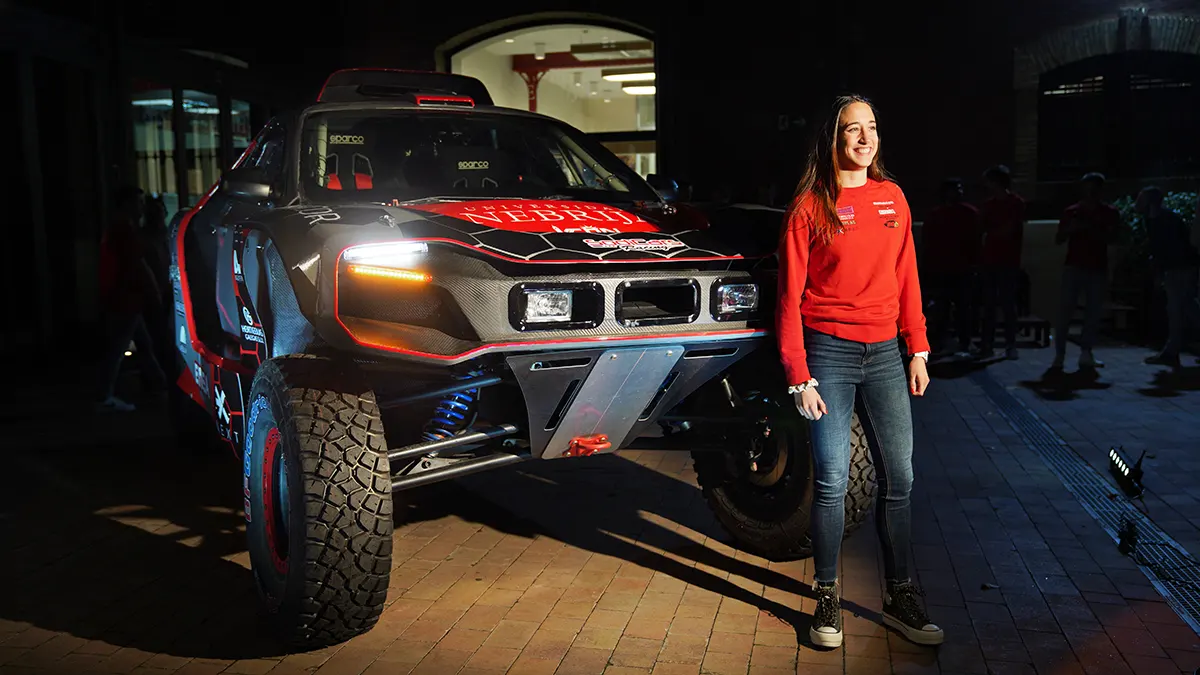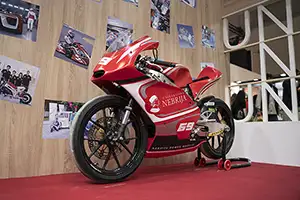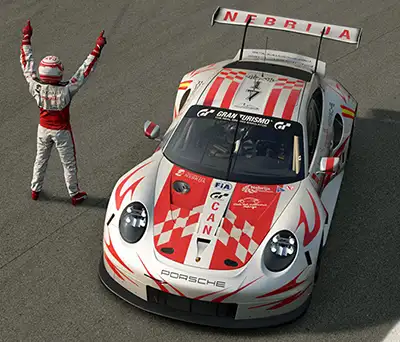Degree in Automobile Engineering
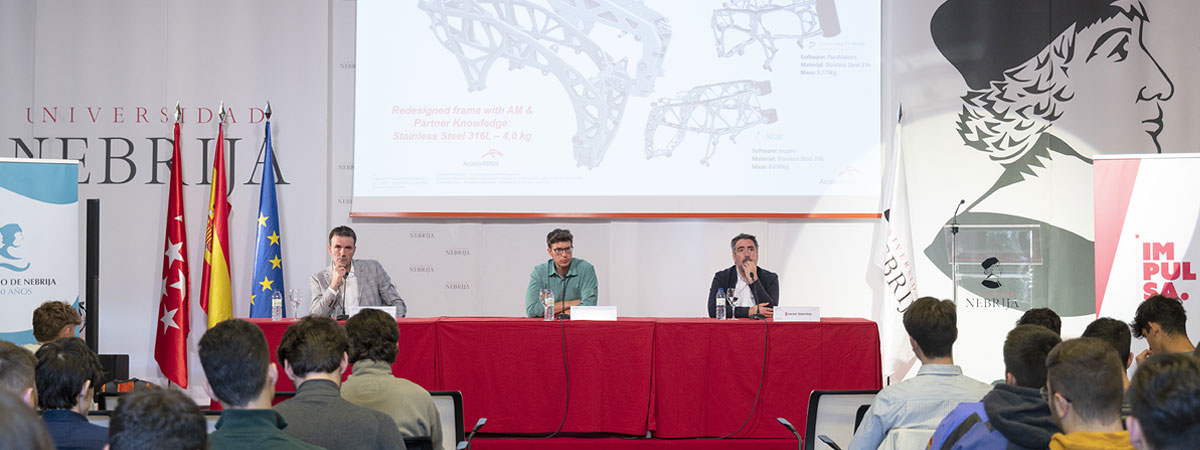
The automotive industry accounts for 10% of Spain’s GDP
The Bachelor’s Degree in Automobile Engineering is very closely related to the degree in Mechanical Engineering, but focussed more specifically on the car industry. However, the sector encompasses a range of sub-sectors and areas of activity that are sufficiently broad to justify a specific degree programme.
Graduates will obtain a very robust scientific foundation coupled with accurate analytical skills to solve multidisciplinary problems, while equipping them with decision-making ability and enhancing creativity and critical reasoning in the domain of automobile engineering.
Graduate engineers will have leadership and project management skills. They must also be able to handle specifications, regulations and mandatory laws and standards in the automobile industry, and analyse and assess the social and environmental impact of proposed solutions.
Graduates must organise and plan company structures. They are also provided with the scientific/technological fundamentals required for independent learning or for going on to postgraduate study to enable them to deepen their knowledge and/or specialise in various fields of engineering, particularly for admission to postgraduate study on automobiles and industrial activity.
Automobile Engineering graduates can also access the master's programme in Industrial Engineering, which involves admission to the professional body. [+info]
Nebrija To Dakar – “Discover the Nebrija To Dakar project, where you can actively participate while you study the Degree”
Sergio Corbera, Coordinator of the Automobile and Mechanics area
Automobile Club
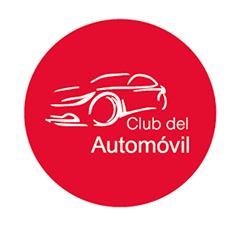
The Automobile Club provides students with diverse opportunities connected to various vehicular aspects. Beyond fostering a community among members, these initiatives aim to deepen their understanding of subjects relevant to their future endeavors in the automotive field.
- Courses: competition marshals, introduction to track engineering, robotics, office automation, introduction to Aerodynamics and CFD.
- Activities: team karting, visits to fairs, circuits, rallies, conferences and master classes.
- Projects: Nebrija Carcross, Nebrija To Dakar, Nebrija Power Wheelie, Nebrija Virtual Engineering and Nebrija & Escudería Centro.
The only fully implemented degree course in Spain dedicated to automobile engineering
Curriculum
BOE No.294, of 6 decembre, 2016.
All our degrees and curricula have been prepared in accordance with the new guidelines set by current legislation, having already been verified by the National Agency for Quality Assessment.
The student must complete 240 credits
First year 60 ECTS
First Semester 30 ECTS- 6 ECTS | Calculus I
- 6 ECTS | Physics I
- 6 ECTS | Graphical Expression I
- 6 ECTS | Fundamentals of Computing
- 6 ECTS | Leadership I
Second Semester 30 ECTS- 6 ECTS | Mathematics I
- 6 ECTS | Vehicle Systems and Parts I
- 6 ECTS | Physics II
- 6 ECTS | Graphical Expression II
- 6 ECTS | Chemistry
Second year 60 ECTS
First Semester 30 ECTS- 6 ECTS | Calculus II
- 6 ECTS | Graphical Engineering in the Automobile I
- 6 ECTS | Circuits
- 6 ECTS | Fundamentals of the Science of Materials
- 6 ECTS | Regulations
Second Semester 30 ECTS- 6 ECTS | Mathematics II
- 6 ECTS | Graphical Engineering in the Automobile II
- 6 ECTS | Materials in the Automobile Environment
- 6 ECTS | Thermodynamics
- 6 ECTS | Electronics
Third year 48 ECTS
First Semester 24 ECTS- 6 ECTS | Statistics
- 6 ECTS | Theory of Machines
- 6 ECTS | Resistance of Materials
- 6 ECTS | Fluid Mechanics
Second Semester 24 ECTS- 6 ECTS | Automation and Control Methods
- 6 ECTS | Motors
- 6 ECTS | Electric Machines
- 6 ECTS | Theory of Vehicles
- 6 ECTS | Development of Interpersonal Involvement and Solidarity
Fourth year 72 ECTS
First Semester 36 ECTS- 6 ECTS | Electric Vehicles
- 6 ECTS | Industrial Processes I
- 6 ECTS | Calculation of Structures
- 6 ECTS | Automobile Instrumentation and Electronics
- 12 ECTS | Assessment of Business Skills Development
Second Semester 36 ECTS- 6 ECTS | Industrial Processes II
- 6 ECTS | Automobile Quality and Project Management
- 6 ECTS | Vehicle Systems and Parts II
- 6 ECTS | Leadership II
- 12 ECTS | Final Research Project
More info about the subjects
Consisting of Communication and Emotional Intelligence, Teamwork, Project Management, Leadership and Negotiation, Skills Development Workshops (includes English level test)
- 6 ECTS | Communication, Emotional Intelligence and Teamwork Workshops
- 6 ECTS | Project Management, Leadership and Negotiation Workshops
- 6 ECTS | Lidera I and II Professional Skills Development Workshops
The recognition of 6 credits will be assessed depending on the different activities that the student performs throughout his degree. They will be awarded for university cultural activities, sports, student representation, solidarity and cooperation, or for taking one of the following subjects: Ethics of volunteering or Human Rights.
Program which aims to promote the practical training of students, under the continuous supervision of the Department of Professional Careers of the University, the academic department corresponding to the degree and the company or collaborating institution where the practices are carried out. Advice is provided on the internship and there is follow-up and tutoring, always taking into account the professional orientation of each student.
List of companies and institutions where the students of the degree have had internships under the agreement of educational cooperation. More information on Company InternshipsThe End of Degree Project is an academic report that delves into a subject of the curriculum and allows the evaluation of the skills acquired in the Degree. It can be linked to the professional internship or it can also be part of a research project.
Nebrija University, which is committed to languages and quality, provides the student with added value with the Diploma in English Professional Communication, which will allow him/her to achieve with confidence the competence demanded to successfully join the labor market.
It corresponds to level C1.
More information herePrevious curriculum (to extinguish)
Third year 48 ECTS
First Semester 30 ECTS- 6 ECTS | Statistics
- 6 ECTS | Electronics
- 6 ECTS | Theory of Machines
- 6 ECTS | Resistance of Materials
- 6 ECTS | Fluid Mechanics
Second Semester 24 ECTS- 6 ECTS | Automatismos y Métodos de Control
- 6 ECTS | Motors
- 6 ECTS | Electric Machines
- 6 ECTS | Teoría de Vehículos
- 6 ECTS | Development of the Participative and Solidarity Spirit
Fourth year 78 ECTS
First Semester 30 ECTS- 6 ECTS | Reglamentación
- 6 ECTS | Electric Vehicles
- 6 ECTS | Procesos Industriales I
- 6 ECTS | Cálculo de Estructuras
- 6 ECTS | Instrumentación y Electrónica del Automóvil
Second Semester 48 ECTS- 6 ECTS | Procesos Industriales II
- 6 ECTS | Calidad y Gestión de Proyectos de Automoción
- 6 ECTS | Vehicle Systems and Parts II
- 6 ECTS | Leadership II
- 12 ECTS | Assessment of Business Skills Development
- 12 ECTS | Final Research Project
Access to the Master's Degree in Industrial Engineering
Acceso al Máster
Los graduados en Automobile Engineering tienen acceso al Máster Universitario en Ingeniería Industrial, posibilitando el acceso al colegio profesional, aunque deberán cursar, de no haberlo hecho antes, los 39 ECTS complementarios que se muestran en esta tabla.
| SUBJECTS | CREDITS |
| La empresa y su entorno | 6 |
| Medio ambiente y sostenibilidad | 6 |
| Dirección y organización de empresas | 3 |
| Proyectos | 6 |
| Ingeniería química | 6 |
| Ingeniería térmica | 6 |
| Sistemas digitales | 6 |
| TOTAL | 39 |
Specialization Diplomas from the Higher Polytechnic School
Our program offers the unique opportunity to integrate Specialization Diplomas, enabling students to enhance their education and increase their prospects with leading companies, both nationally and internationally, within their respective sectors.
We deliver our courses in a flexible hybrid format, blending face-to-face and online instruction. This approach allows students to conveniently balance their coursework with their studies.
Professors
| Profesores Professors | Porcentaje de Doctores Percentage of PhD holders |
| 62 | 60% |
Profesores
Professors
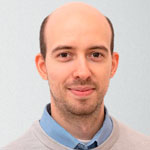 Daniel Gómez Lendínez
Director del Grado en Ingeniería del Automóvil
Daniel Gómez Lendínez
Director del Grado en Ingeniería del AutomóvilCoordinador de Trabajos Fin de Grado Director of the Bachelor's Degree in Automobile Engineering
Final Degree Project Coordinator Doctor en Mecánica de fluidos por la Universidad Carlos III de Madrid. Graduado en Ingeniería Mecánica bilingüe y Máster en Mecánica industrial por la Universidad Carlos III de Madrid. Experiencia de cuatro años en cálculo estructural, fluido y térmico en sector de la automoción y nuclear en Innomerics como ingeniero y responsable de proyecto. Co-fundador y co-responsable del equipo de Formula Student de la Universidad Carlos III de Madrid durante 7 años. Profesor de Mecánica de fluidos, simulación numérica e instalaciones hidráulicas durante cinco años en la Universidad Carlos III de Madrid. Profesor de aerodinámica durante dos años en la Universidad Francisco de Vitoria. Profesor de la Universidad Nebrija desde 2022. Su tesis versó sobre estabilidad de chorros de baja densidad y llamas de difusión.
 Roberto Álvarez Fernández
Director del Departamento Escuela de Ingeniería Industrial
Roberto Álvarez Fernández
Director del Departamento Escuela de Ingeniería IndustrialDirector de Trabajos Fin de Grado Director of the School of Industrial Engineering Department
Director of Final Degree Projects Doctor en Ingeniería Industrial especialidad en Ingeniería de los procesos de fabricación. Ingeniero Industrial especialidad en electrotecnia y especialidad en organización de la producción. Profesor acreditado en las figuras de contratado doctor y profesor de universidad privada. 22 años de experiencia docente y 14 años de experiencia investigadora. Cuenta con dos sexenios de investigación, más de 1400 citas en Google Scholar Citations, 24 artículos en revistas indexadas en el JCR (Journal Citations Reports) de los cuales 15 corresponden al primer cuartil (Q1). Ha publicado dos libros con la editorial Springer y numerosos capítulos de libros, participaciones en congresos y charlas, tanto nacionales como internacionales. Su línea de investigación se centra en la sostenibilidad en el uso de las infraestructuras urbanas y el consumo de energía, incluyendo la actividad industrial, la movilidad y la cuantificación de las emisiones de gases de efecto invernadero debida a dichas actividades.
 Adrián Altamira Peña
Profesor del área de Expresión Gráfica
Professor of the area of Graphic Expression
Graduado en Ingeniería Mecánica e Ingeniería en Diseño Industrial y Desarrollo de Productos por la Universitat Politècnica de València. Máster en Ingeniería de Vehículos de Competición por la Universidad Nebrija. Máster en Ciencia e Ingeniería de Materiales por la Universidad Carlos III. Doctorando en el programa de Ingeniería Mecánica y Organización Industrial en la Universidad Carlos III.
Profesor del área de Expresión Gráfica desde el curso 22-23 en la Universidad Nebrija.
Experiencia como ingeniero en el sector automotriz desde 2022 en la Universidad Nebrija. Especialmente en el desarrollo de carrocerías de materiales compuestos para vehículos de altas prestaciones, como el proyecto Nebrija to Dakar, entre otros.
Adrián Altamira Peña
Profesor del área de Expresión Gráfica
Professor of the area of Graphic Expression
Graduado en Ingeniería Mecánica e Ingeniería en Diseño Industrial y Desarrollo de Productos por la Universitat Politècnica de València. Máster en Ingeniería de Vehículos de Competición por la Universidad Nebrija. Máster en Ciencia e Ingeniería de Materiales por la Universidad Carlos III. Doctorando en el programa de Ingeniería Mecánica y Organización Industrial en la Universidad Carlos III.
Profesor del área de Expresión Gráfica desde el curso 22-23 en la Universidad Nebrija.
Experiencia como ingeniero en el sector automotriz desde 2022 en la Universidad Nebrija. Especialmente en el desarrollo de carrocerías de materiales compuestos para vehículos de altas prestaciones, como el proyecto Nebrija to Dakar, entre otros.
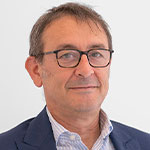 Juan Carlos Arroyo Portero
Director de la Escuela Politécnica Superior.
Juan Carlos Arroyo Portero
Director de la Escuela Politécnica Superior.Profesor del área de Estructuras Director of the Higher Polytechnic School.
Professor of the area of Structures Ingeniero de caminos, canales y puertos (UPM, 1990). Doctor en arquitectura (UCJC, 2017). Fundador de CALTER ingeniería (1997), CINTER divulgación técnica (2000), Ingenio.xyz (2005).
Comienza a investigar en la ETSICCP de la UPM (1990) sobre juntas de dilatación, lo que le llevó a proyectar el récord del mundo de estructura sin juntas (1998, Aldaia). Ha publicado numerosos artículos de investigación y realizaciones en las revistas españolas del sector y en los congresos internacionales celebrados en España en los últimos 25 años. Es autor de varias patentes, dos sobre estructuras plegables, una sobre nudos prefabricados en la unión entre dovelas de torres eólicas prefabricadas de hormigón y una patente de construcción modular de edificios 3D. Entre sus publicaciones: prontuario informático del hormigón en 1992, un libro y software gratuito imprescindible de las oficinas españolas de proyecto de estructuras. Números gordos en el proyecto de estructuras en 2001. Coautor de las ediciones 15ª y 16ª de Hormigón armado, Jiménez Montoya.
Profesor desde 1992 en numerosos cursos de postgrado (UNED, Universidad de Sevilla, UPC y UPM). Ha dirigido cursos de verano en la UCJC, y cursos de experto en la Universidad de Catilla la Mancha y el Master de estructuras de edificación de la UNED y la Escuela de la Edificación. Ha sipo profesor asociado en la ETSICCP, EUAT y ETSAM de la UPM.
Como ingeniero estructural, entre sus obras más destacadas se cuentan, entre otras: los aeropuertos de Cali, Reus, Ciudad Real, y la T4 de Barajas (en colaboración); la Biblioteca del Estado en Santiago de Compostela; la comisaría local de la Policía de Plasencia; el Recinto ferial de A Coruña; la rehabilitación de la Fundación Jiménez Díaz; más de cien torres eólicas de hormigón; la remonta de las Torres Colón.
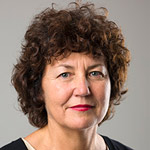 Miren Aurkene Alzua Sorzabal
Directora de Trabajos Fin de Grado
Director of End of Degree Projects
Doctora en Turismo Internacional en la Universidad de Purdue, Estados Unidos (1999). Su trabajo inicial se concentró en la aplicación de modelos psicosociales en el ámbito del turismo, el patrimonio cultural y natural. Actualmente posee una doble afiliación a la Universidad de Nebrija y Universidad de Deusto. Lidera el Grupo de Investigación en Investigación e Innovación en Turismo Inteligente de la Universidad Nebrija. Es co-fundadora de la empresa Lurmetrika Labs dedicada a la inteligencia turística y analítica avanzada en turismo. Tene una amplia experiencia en la investigación y el campo académico del turismo. Ha sido Directora Ejecutiva del Centro de Investigación de Competencias de Investigación en Turismo, CICtourGUNE. Ha estado a cargo de cursos y seminarios en la Universidad Purdue, en la Universidad Rovira I Virgilli y en la Universidad Deusto. Ha coordinado varios programas académicos como el "Master of Arts in Euroculture" (Erasmus Mundus) y ha participado en varias redes europeas de excelencia. Ha dirigido importantes proyectos de investigación competitivos y ha colaborado con las administraciones públicas vasca, española e internacional. El alcance de la investigación de la Dra. Alzua-Sorzabal se centra en Turismo, Destinos Turísticos Inteligentes, Sistemas Avanzados de Medición y Análisis (Bid Data), e innovación. Sus últimos trabajos se centran en estrategias competitivas para destinos turísticos inteligentes e identificación de nuevas métricas para modelar y poner en acción la inteligencia en el sector turístico. Es miembro del consejo editorial de Information Technology & Tourism. Sus trabajos están publicados en diversas revistas de impacto.
Miren Aurkene Alzua Sorzabal
Directora de Trabajos Fin de Grado
Director of End of Degree Projects
Doctora en Turismo Internacional en la Universidad de Purdue, Estados Unidos (1999). Su trabajo inicial se concentró en la aplicación de modelos psicosociales en el ámbito del turismo, el patrimonio cultural y natural. Actualmente posee una doble afiliación a la Universidad de Nebrija y Universidad de Deusto. Lidera el Grupo de Investigación en Investigación e Innovación en Turismo Inteligente de la Universidad Nebrija. Es co-fundadora de la empresa Lurmetrika Labs dedicada a la inteligencia turística y analítica avanzada en turismo. Tene una amplia experiencia en la investigación y el campo académico del turismo. Ha sido Directora Ejecutiva del Centro de Investigación de Competencias de Investigación en Turismo, CICtourGUNE. Ha estado a cargo de cursos y seminarios en la Universidad Purdue, en la Universidad Rovira I Virgilli y en la Universidad Deusto. Ha coordinado varios programas académicos como el "Master of Arts in Euroculture" (Erasmus Mundus) y ha participado en varias redes europeas de excelencia. Ha dirigido importantes proyectos de investigación competitivos y ha colaborado con las administraciones públicas vasca, española e internacional. El alcance de la investigación de la Dra. Alzua-Sorzabal se centra en Turismo, Destinos Turísticos Inteligentes, Sistemas Avanzados de Medición y Análisis (Bid Data), e innovación. Sus últimos trabajos se centran en estrategias competitivas para destinos turísticos inteligentes e identificación de nuevas métricas para modelar y poner en acción la inteligencia en el sector turístico. Es miembro del consejo editorial de Information Technology & Tourism. Sus trabajos están publicados en diversas revistas de impacto.
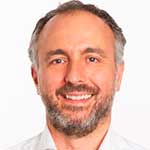 Alberto Avecilla García
Profesor del área de Materiales
Professor of the Materials area
Ingeniero industrial. Executive MBA por el IE Business School y profesor, con 20 años de experiencia en diferentes sectores. En consultoría digital, es experto en la puesta en marcha e implementación de proyectos en las áreas de innovación y transformación digital: gemelo digital, plataforma digital para el seguimiento y análisis de proyectos y activos, análisis predictivo, sensorización y geolocalización de maquinaria en lugares complejos como túneles y un proyecto medioambiental (ESG) para darle una segunda vida a los materiales. En los sectores de industria, construcción y logística (en empresas como Albatros, FCC, OSSA y Sacyr) ha desarrollado proyectos de gestión de activos de vehículos y maquinaria con multitud de países, siendo responsable de toda la cadena de valor (compra, mantenimiento y maximización de la vida útil, logística y desinversión).
Alberto Avecilla García
Profesor del área de Materiales
Professor of the Materials area
Ingeniero industrial. Executive MBA por el IE Business School y profesor, con 20 años de experiencia en diferentes sectores. En consultoría digital, es experto en la puesta en marcha e implementación de proyectos en las áreas de innovación y transformación digital: gemelo digital, plataforma digital para el seguimiento y análisis de proyectos y activos, análisis predictivo, sensorización y geolocalización de maquinaria en lugares complejos como túneles y un proyecto medioambiental (ESG) para darle una segunda vida a los materiales. En los sectores de industria, construcción y logística (en empresas como Albatros, FCC, OSSA y Sacyr) ha desarrollado proyectos de gestión de activos de vehículos y maquinaria con multitud de países, siendo responsable de toda la cadena de valor (compra, mantenimiento y maximización de la vida útil, logística y desinversión).
 Ibtissam Azaoum Zahoum
Profesora del área de Informática
Professor of Computer Science
Graduada en Economía y Negocios Internacionales por la Universidad Pompeu Fabra, con especialización en mercados asiáticos en la Chinese University of Hong Kong. Máster en Ciencia de Datos aplicada a Seguros en Universidad de Oviedo. Máster en Ciencias Actuariales y Financieras en la UCM. Actualmente cursa el Grado en Ciencia de Datos en la UOC para ampliar sus competencias en programación y análisis. Su trayectoria profesional combina conocimiento actuarial con técnicas de programación y machine learning. Trabaja como actuaria especializada en ciencia de datos, y cuenta con seis años de experiencia en el sector asegurador, principalmente en pricing y modelización.
Ibtissam Azaoum Zahoum
Profesora del área de Informática
Professor of Computer Science
Graduada en Economía y Negocios Internacionales por la Universidad Pompeu Fabra, con especialización en mercados asiáticos en la Chinese University of Hong Kong. Máster en Ciencia de Datos aplicada a Seguros en Universidad de Oviedo. Máster en Ciencias Actuariales y Financieras en la UCM. Actualmente cursa el Grado en Ciencia de Datos en la UOC para ampliar sus competencias en programación y análisis. Su trayectoria profesional combina conocimiento actuarial con técnicas de programación y machine learning. Trabaja como actuaria especializada en ciencia de datos, y cuenta con seis años de experiencia en el sector asegurador, principalmente en pricing y modelización.
 Joseba K. Azcaray Fernández
Director del Máster en Diseño Industrial y del Grado en Ingeniería en Diseño Industrial y Desarrollo del Producto
Joseba K. Azcaray Fernández
Director del Máster en Diseño Industrial y del Grado en Ingeniería en Diseño Industrial y Desarrollo del ProductoDirector de Trabajos Fin de Grado Director of the Master's Degree in Industrial Design and the Degree in Engineering in Industrial Design and Product Development
Director of End of Degree Projects Doctor Internacional con mención Cum Laude en diseño, fabricación y gestión de proyectos industriales por la Universitat Politècnica de València (UPV). Actualmente es director del grado en ingeniería en Diseño Industrial y Desarrollo de Producto y máster de la Universidad de Nebrija especializado en el área de innovación e investigación de proyectos.
Ha colaborado en proyectos internacionales en el que destaca la estancia en la universidad de LABA (Italia) con el proyecto de investigación de las nuevas tecnologías creativas aplicadas a la docencia.
Funda en Bilbao el estudio W! design con el proyecto Txikitech, donde desarrollan e investigan la inclusión de metodologías basadas en el diseño en el sistema curricular de la enseñanza a través de las nuevas tecnologías. En él se alcanza el conocimiento de las ciencias, matemáticas, ingeniería, tecnología y el arte (STEAM) desde metodologías del diseño. En la actualidad, la escuela posee entorno 1000 alumnos y expandido en varios puntos. A su vez, dirige un equipo de investigación y desarrollo de producto relacionado con las nuevas tecnologías opensources y fabricación digital.
 Francisco Badea Romero
Profesor del área de Ingeniería Mecánica
Francisco Badea Romero
Profesor del área de Ingeniería MecánicaIP del grupo de investigación Nebrija en Ingeniería de Vehículos (GREEN) Professor of the Mechanical Engineering area
IP of the Nebrija research group in Vehicle Engineering (GREEN) Doctor en Ingeniería Mecánica por la Universidad Politécnica de Madrid. Ingeniero de Automóviles por la Universidad Politécnica de Bucarest (2002-2007). Ha realizado dos Máster, uno en Ingeniería Mecánica (Universidad Politécnica de Madrid) y otro en Ingeniería de Automóviles (Universidad de Bucarest). Doctorado en Ingeniería Mecánica (2014) en la Universidad Politécnica de Madrid. Ha sido profesor del Máster en Automoción INSIA-UPM (Vibraciones, análisis modales, harmónicos y transitorios mediante elementos finitos) entre 2010/2015. Profesor universitario acreditado a la figura profesor ayudante doctor por la ANECA.
Su experiencia en investigación ha estado relacionada con el Instituto universitario de investigación del automóvil (Madrid) - 03/2009-12/2014 y con el Georgia Institute of Technology (Atlanta) – 05/2011-09/2011. Actualmente con el Grupo Nebrija de Ingeniería de Vehículos GREEN.
Más de ocho años de experiencia docente en la Universidad Nebrija en asignaturas relacionadas con teoría de máquinas, cálculo y diseño avanzado de máquinas e ingeniería por ordenador.
 Rafael Barea del Cerro
Coordinador del Programa de Doctorado en Tecnologías Industriales e Informáticas
Rafael Barea del Cerro
Coordinador del Programa de Doctorado en Tecnologías Industriales e Informáticas Profesor del área de Materiales Coordinator of the Doctoral Program in Industrial and Computer Technologies
Professor of the Materials area Doctor por la UAM, Ingeniero de Materiales por la UPM, Licenciado en CC Físicas y Diplomado en Magisterio por la UCM. Especialista universitario en elementos finitos en problemas térmicos por la UNED. Experiencia investigadora durante más de 20 años en diferentes centros del CSIC y en la Universidad Nebrija. Profesor titular por la ANECA, posee tres sexenios de investigación. Especialidades: procesamiento y caracterización de materiales cerámicos y metálicos, en modelos matemáticos y simulación (redes neuronales, lógica difusa, inteligencia artificial, elementos finitos, modelización de propiedades no lineales de materiales...). Actualmente trabajando en el área de fabricación aditiva en inoxidables, en propiedades mecánicas de aleaciones de magnesio y electromagnéticas de perovskitas con orientación a la fabricación de piezas y sensores de la industria del transporte (aviones, trenes, barcos y automóviles).
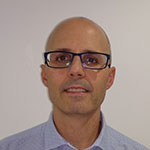 Fernando Beltrán Cilleruelo
Profesor del área de Expresión Gráfica
Professor of the area of Graphic Expression
Ingeniero Técnico Industrial por la Escuela Universitaria de Ingeniería Técnica Industrial de Bilbao, (UPV) y Graduado en Ingeniería Mecánica por la Escuela Politécnica Superior de la Universidad Nebrija. Mas de 10 años de experiencia como Project Manager en el campo de la construcción industrial y residencial.
Instructor del módulo MATLAB-Simulink y Catia V5 para el grado de Ingeniería para el Motociclismo de Competición, organizado por la Fundación General de la Universidad Politécnica de Madrid (FGUPM), impartido en la Escuela Técnica Superior de Ingeniería y Diseño Industrial de la UPM (ETSIDI-UPM).
Actualmente, profesor asociado en la Escuela Politécnica Superior de la Universidad Nebrija desde 2017, en las áreas de Expresión gráfica e Ingeniería Eléctrica. Colaboraciones en el área de movilidad sostenible y huella de carbono.
Publicaciones en el área de la movilidad: “A new approach to battery powered electric vehicles: A hydrogen fuel-cell based range extender system”. International Journal of Hydrogen Energy; “Fuel optimization strategy for hydrogen fuel cell range extender vehicles applying genetic algorithms” Renewable and Sustainable Energy Reviews. ELSEVIER. - Otras publicaciones: "Carbon footprint calculator for urban planning in the Community of Madrid", considerada como una de las mejores SUSTAINABILITY ACTIONS 2022 de impacto ambiental y social, en su II Edición. “Measuring to evaluate alternatives: the carbon footprint calculator for urban planning of the Community of Madrid” International Journal Proceedings of Science and Technology, y How does the urban growth in climate change? Ciudad Sostenible 2023.
Accesit en los premios a los trabajos Fin de Grado correspondientes al curso 2014-2015, con el proyecto “Análisis de la influencia de la conducción en la eficiencia e impacto ambiental de un vehículo eléctrico. (MATLAB-SIMULINK)” por el Colegio Oficial de Ingenieros Técnicos Industriales de Madrid.
Fernando Beltrán Cilleruelo
Profesor del área de Expresión Gráfica
Professor of the area of Graphic Expression
Ingeniero Técnico Industrial por la Escuela Universitaria de Ingeniería Técnica Industrial de Bilbao, (UPV) y Graduado en Ingeniería Mecánica por la Escuela Politécnica Superior de la Universidad Nebrija. Mas de 10 años de experiencia como Project Manager en el campo de la construcción industrial y residencial.
Instructor del módulo MATLAB-Simulink y Catia V5 para el grado de Ingeniería para el Motociclismo de Competición, organizado por la Fundación General de la Universidad Politécnica de Madrid (FGUPM), impartido en la Escuela Técnica Superior de Ingeniería y Diseño Industrial de la UPM (ETSIDI-UPM).
Actualmente, profesor asociado en la Escuela Politécnica Superior de la Universidad Nebrija desde 2017, en las áreas de Expresión gráfica e Ingeniería Eléctrica. Colaboraciones en el área de movilidad sostenible y huella de carbono.
Publicaciones en el área de la movilidad: “A new approach to battery powered electric vehicles: A hydrogen fuel-cell based range extender system”. International Journal of Hydrogen Energy; “Fuel optimization strategy for hydrogen fuel cell range extender vehicles applying genetic algorithms” Renewable and Sustainable Energy Reviews. ELSEVIER. - Otras publicaciones: "Carbon footprint calculator for urban planning in the Community of Madrid", considerada como una de las mejores SUSTAINABILITY ACTIONS 2022 de impacto ambiental y social, en su II Edición. “Measuring to evaluate alternatives: the carbon footprint calculator for urban planning of the Community of Madrid” International Journal Proceedings of Science and Technology, y How does the urban growth in climate change? Ciudad Sostenible 2023.
Accesit en los premios a los trabajos Fin de Grado correspondientes al curso 2014-2015, con el proyecto “Análisis de la influencia de la conducción en la eficiencia e impacto ambiental de un vehículo eléctrico. (MATLAB-SIMULINK)” por el Colegio Oficial de Ingenieros Técnicos Industriales de Madrid.
 Elena Bulmer Santana
Profesora de área de Proyectos
Professor of the area of Projects
Licenciada en Biología por la Universidad de Sussex. Máster en la Universidad de Reading (Reino Unido). Doctora en Biología por la Universidad Complutense de Madrid. En 2023 obtuvo también el grado de Doctora por la Universidad Rey Juan Carlos con una tesis titulada ODS 17, “Revitalizar la alianza mundial para el Desarrollo Sostenible”, en la que estudia la importancia de generar alianzas entre todos los sectores de la economía (público y privado) para contribuir al pilar medioambiental de la sostenibilidad. Sus líneas de investigación incluyen la sostenibilidad, la gobernanza ambiental, el desarrollo sostenible y la integración de sectores públicos y privados en estrategias medioambientales. Ha dirigido tesis relacionadas con tecnología aplicada, participación pública y gobernanza del agua, entre ellas una investigación doctoral sobre la toma de decisiones basada en tecnología blockchain para la integración de planificación hidrológica y participación pública.
Elena Bulmer Santana
Profesora de área de Proyectos
Professor of the area of Projects
Licenciada en Biología por la Universidad de Sussex. Máster en la Universidad de Reading (Reino Unido). Doctora en Biología por la Universidad Complutense de Madrid. En 2023 obtuvo también el grado de Doctora por la Universidad Rey Juan Carlos con una tesis titulada ODS 17, “Revitalizar la alianza mundial para el Desarrollo Sostenible”, en la que estudia la importancia de generar alianzas entre todos los sectores de la economía (público y privado) para contribuir al pilar medioambiental de la sostenibilidad. Sus líneas de investigación incluyen la sostenibilidad, la gobernanza ambiental, el desarrollo sostenible y la integración de sectores públicos y privados en estrategias medioambientales. Ha dirigido tesis relacionadas con tecnología aplicada, participación pública y gobernanza del agua, entre ellas una investigación doctoral sobre la toma de decisiones basada en tecnología blockchain para la integración de planificación hidrológica y participación pública.
 Álvaro Bustinduy Candelas
Director de Trabajos Fin de Grado
Director of End of Degree Projects
Doctor en Ciencias Matemáticas por la UCM. Acreditado como Profesor Titular y como Profesor Doctor de Universidad Privada. Mantiene líneas de investigación en el campo de las Ecuaciones Diferenciales y los Sistemas Dinámicos Complejos. Ha publicado trabajos de investigación en revistas matemáticas internacionales. Ha impartido conferencias en congresos internacionales. Participa en varios proyectos de investigación y colabora con investigadores de la UCM y Universidad Nacional Autónoma de México. En cuanto a su actividad docente, ha impartido en la Escuela Politécnica Superior de la Universidad Antonio de Nebrija desde el curso 2003-04 hasta la actualidad diferentes asignaturas a todos los niveles (primer y segundo ciclo, doctorado) del área de matemáticas y la programación, incluidas asignaturas de diferentes titulaciones del campo de la Ingeniería Informática. Actualmente compagina su actividad docente e investigadora con el cargo de Vicerrector de Investigación de la Universidad.
Álvaro Bustinduy Candelas
Director de Trabajos Fin de Grado
Director of End of Degree Projects
Doctor en Ciencias Matemáticas por la UCM. Acreditado como Profesor Titular y como Profesor Doctor de Universidad Privada. Mantiene líneas de investigación en el campo de las Ecuaciones Diferenciales y los Sistemas Dinámicos Complejos. Ha publicado trabajos de investigación en revistas matemáticas internacionales. Ha impartido conferencias en congresos internacionales. Participa en varios proyectos de investigación y colabora con investigadores de la UCM y Universidad Nacional Autónoma de México. En cuanto a su actividad docente, ha impartido en la Escuela Politécnica Superior de la Universidad Antonio de Nebrija desde el curso 2003-04 hasta la actualidad diferentes asignaturas a todos los niveles (primer y segundo ciclo, doctorado) del área de matemáticas y la programación, incluidas asignaturas de diferentes titulaciones del campo de la Ingeniería Informática. Actualmente compagina su actividad docente e investigadora con el cargo de Vicerrector de Investigación de la Universidad.
 Alberto Castellano Soria
Profesor del área de Física
Professor of the Physics area
Doctor en Física por la Universidad Complutense de Madrid, tras haber completado un Máster en Nano física y Materiales Avanzados y ser graduado en Ciencias Físicas con especialidad en Física Fundamental en la misma universidad. Desarrolló su tesis en el Instituto de Magnetismo Aplicado (IMA) como personal de apoyo a la investigación. Sus áreas de conocimiento se centran en la caracterización de nanomateriales, la síntesis de composites basados en nanopartículas metálicas y magnéticas, y el electromagnetismo aplicado a tecnologías radar y sistemas de absorción electromagnética. Además, ha participado en proyectos internacionales con clientes como el Banco Central Europeo (BCE) a través de la empresa Micromag.
Alberto Castellano Soria
Profesor del área de Física
Professor of the Physics area
Doctor en Física por la Universidad Complutense de Madrid, tras haber completado un Máster en Nano física y Materiales Avanzados y ser graduado en Ciencias Físicas con especialidad en Física Fundamental en la misma universidad. Desarrolló su tesis en el Instituto de Magnetismo Aplicado (IMA) como personal de apoyo a la investigación. Sus áreas de conocimiento se centran en la caracterización de nanomateriales, la síntesis de composites basados en nanopartículas metálicas y magnéticas, y el electromagnetismo aplicado a tecnologías radar y sistemas de absorción electromagnética. Además, ha participado en proyectos internacionales con clientes como el Banco Central Europeo (BCE) a través de la empresa Micromag.
 Óscar Castillo Campo
Director del Grado en Ingeniería Mecánica
Óscar Castillo Campo
Director del Grado en Ingeniería MecánicaProfesor del área de Ingeniería Eléctrica y Electrónica Director of the Degree in Mechanical Engineering
Professor in the area of Electrical and Electronic Engineering Doctor en Tecnologías Industriales (Universidad Antonio de Nebrija). Máster en Ingeniería Avanzada de Fabricación (UNED). Ingeniero Industrial Mecánico (UC3M). Responsable del área mecánica de la consultora Vázquez y Torres Ingeniería S. L. durante los últimos diez años y profesor asociado en la Universidad Nebrija durante más de cinco años. Su carrera profesional está vinculada al diseño y fabricación de sistemas mecánicos de alto contenido tecnológico para el sector del automóvil, aeronáutico e infraestructuras industriales, con más de veinte años de experiencia dedicada a la supervisión técnica, organización y gestión de recursos en proyectos interdisciplinares nacionales e internacionales en el sector privado y público (GRUPO ANTOLÍN I+D+I, CENTRO TÉCNICO DE SEAT, VALEO, INTA, Applus+ IDIADA, JOHNSON CONTROLS, ZF-TRW, MAGNA, LEAR, ISRI, EADS, IBERIA, CESA, INTA, CEDEX, ADIF, ...), con participación activa en proyectos europeos (CleanSky y H2020).
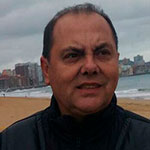 Heliodoro Catalán Mogorrón
Profesor del área de Ingeniería Mecánica
Professor of the Mechanical Engineering area
Titulado como Ingeniero Agrónomo por la Universidad Politécnica de Madrid en 1987 y como Doctor desde 1996. Acreditado como Profesor Contratado Doctor y Profesor Doctor de Universidad Privada. Desde 1987 compagina la docencia universitaria con su actividad profesional en diferentes empresas del sector privado, tanto en ingenierías, como departamentos de proyectos, diseños y desarrollos, así como oficinas técnicas, siendo responsable en dichas Oficinas o Departamentos desde 1992. También ha desarrollado actividad en mantenimiento de equipos móviles. La actividad docente se ha centrado en docencia en departamentos de matemáticas (Universidad Politécnica de Madrid desde 1987 hasta 2014); departamento de métodos cuantitativos (Universidad de Navarra 1999-2007); Profesor visitante de postgrado en la universidad brasileña UFSM (mayo 2019-julio 2020); Universidad Nebrija, profesor del área de Ingeniería Mecánica desde 2020. Actualmente su actividad principal se centra en la colaboración con revistas de divulgación en maquinaria agrícola, así como en actividades en empresa propia del sector vitivinícola y oleícola.
Heliodoro Catalán Mogorrón
Profesor del área de Ingeniería Mecánica
Professor of the Mechanical Engineering area
Titulado como Ingeniero Agrónomo por la Universidad Politécnica de Madrid en 1987 y como Doctor desde 1996. Acreditado como Profesor Contratado Doctor y Profesor Doctor de Universidad Privada. Desde 1987 compagina la docencia universitaria con su actividad profesional en diferentes empresas del sector privado, tanto en ingenierías, como departamentos de proyectos, diseños y desarrollos, así como oficinas técnicas, siendo responsable en dichas Oficinas o Departamentos desde 1992. También ha desarrollado actividad en mantenimiento de equipos móviles. La actividad docente se ha centrado en docencia en departamentos de matemáticas (Universidad Politécnica de Madrid desde 1987 hasta 2014); departamento de métodos cuantitativos (Universidad de Navarra 1999-2007); Profesor visitante de postgrado en la universidad brasileña UFSM (mayo 2019-julio 2020); Universidad Nebrija, profesor del área de Ingeniería Mecánica desde 2020. Actualmente su actividad principal se centra en la colaboración con revistas de divulgación en maquinaria agrícola, así como en actividades en empresa propia del sector vitivinícola y oleícola.
 Fernando Chávarri Dicenta
Director de Trabajos Fin de Grado
Director of End of Degree Projects
Licenciado en Ciencias Físicas (1966).- Universidad Complutense de Madrid Doctor en Ciencias por la Universidad Politécnica de Madrid (2002) 27 años de experiencia en la empresa privada – Caterpillar-Finanzauto S.A. (1966- 1993). Director de sucursal Norte- Director de la División de Motores-Director de Marketing- Director de Informática- Director de Recursos Humanos- Miembro del Comité de Dirección. Consejero Delegado de STET, Caterpillar Portugal. Profesor Doctor Asociado de la Escuela Técnica Superior de Ingenieros de Telecomunicación (UPM) (1997-2010). Profesor de Calidad Total de CEPADE. Profesor de Estrategia en los Master MBA y MDSIC de la UPM. Autor de dos libros (Filosofía y Ética Empresarial; 1898. El Liderazgo en las Modernas Organizaciones; 2006), y numerosos artículos sobre temas de gestión empresarial y liderazgo. Fundador y Director de C.CH. QUALITY S.L. Cofundador y Director del Grupo de Reingeniería Estratégica.
Fernando Chávarri Dicenta
Director de Trabajos Fin de Grado
Director of End of Degree Projects
Licenciado en Ciencias Físicas (1966).- Universidad Complutense de Madrid Doctor en Ciencias por la Universidad Politécnica de Madrid (2002) 27 años de experiencia en la empresa privada – Caterpillar-Finanzauto S.A. (1966- 1993). Director de sucursal Norte- Director de la División de Motores-Director de Marketing- Director de Informática- Director de Recursos Humanos- Miembro del Comité de Dirección. Consejero Delegado de STET, Caterpillar Portugal. Profesor Doctor Asociado de la Escuela Técnica Superior de Ingenieros de Telecomunicación (UPM) (1997-2010). Profesor de Calidad Total de CEPADE. Profesor de Estrategia en los Master MBA y MDSIC de la UPM. Autor de dos libros (Filosofía y Ética Empresarial; 1898. El Liderazgo en las Modernas Organizaciones; 2006), y numerosos artículos sobre temas de gestión empresarial y liderazgo. Fundador y Director de C.CH. QUALITY S.L. Cofundador y Director del Grupo de Reingeniería Estratégica.
 Gerardo Conejero Ortega
Coordinador del área de Energía
Gerardo Conejero Ortega
Coordinador del área de EnergíaProfesor de las áreas de Física, de Ingeniería Eléctrica y Electrónica, y de Energía Coordinator of the Energy area
Professor of the areas of Physics, Electrical and Electronic Engineering, and Energy Doctor por la Universidad Antonio de Nebrija. Ingeniero de Materiales por la Universidad Complutense de Madrid. Profesor de las asignaturas: Electromagnetismo, Física I y Física II en la Universidad Nebrija. Profesor de prácticas de Física I y Física II. Ha compaginado su labor docente con labores de investigación en el campo de los materiales, en la Universidad Nebrija y con el CENIM.
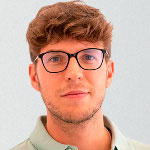 Sergio Corbera Caraballo
Coordinador del área de Automóvil y Mecánica
Sergio Corbera Caraballo
Coordinador del área de Automóvil y MecánicaProfesor del área de Expresión Gráfica Coordinator of the Automobile and Mechanics area
Professor of the area of Graphic Expression Doctor en Tecnologías industriales e informáticas por la Universidad Nebrija. Ingeniero técnico Industrial, especialidad Mecánica, por la Universidad Politécnica de Madrid. Máster en Máquinas Avanzadas y Transportes por la Universidad Carlos III. Máster en Modelos y Métodos de Optimización por la UNED. Experiencia en el cálculo de estructuras en el sector aeronáutico. Cuatro años de experiencia en el desarrollo de motos de competición en la Universidad Politécnica de Madrid, consiguiendo el Premio a la Mejor Innovación Tecnológica en Motostudent 2012. Dos años de experiencia en el cálculo de estructuras en el sector aeronáutico. Seis años de experiencia en el desarrollo y optimización de estructuras para góndolas (Building Maintenance Units) mediante técnicas de inteligencia artificial. Responsable de simulación del departamento técnico de la empresa SAF Góndolas. Experiencia en el diseño y desarrollo de coches de altas prestaciones tipo fórmula (Catia y Dinámica Vehicular). Coordinador del Máster en Ingeniería de Vehículos de Competición y coordinador del proyecto Motostudent, de la Universidad Nebrija. Profesor e investigador de la Universidad Nebrija desde 2014. Su actividad investigadora se centra en el desarrollo de algoritmos de optimización basados en teorías evolutivas, redes neuronales e inteligencia artificial para la automatización del proceso de diseño de productos industriales, especialmente vehículos tipo motocicleta. Se trata de una línea de investigación completamente orientada al mundo de la industria.
 Alexandra Delgado Jiménez
Directora de Trabajos Fin de Grado
Director of End of Degree Projects
Doctora en Arquitectura por la Universidad Politécnica de Madrid. Arquitecta por la ETSA de Madrid en 2005. Accede al grado de Doctora en 2012 con su tesis doctoral "Evolución y crisis de la Región Metropolitana de Madrid 1985-2007. Análisis de las diversas perspectivas de la transformación del gobierno urbano: Una revisión crítica del planeamiento". Profesora de varios máster cuenta con numerosas publicaciones sobre las líneas de investigación y trabajo tanto en revistas españolas como extranjeras, así mismo, es autora, coautora y coordinadora de varios libros. Como profesional, dirige la Oficina de Arquitectura Urbana (AD arquitectura urbana), comprometida con la sostenibilidad urbana y territorial y centrada en el análisis e intervención con diferentes instrumentos y a diferentes escalas: arquitectura, urbanismo, territorio y paisaje. Ha redactado proyectos en áreas metropolitanas como Directrices Territoriales de Planeamiento y Planes Generales (Madrid, Ciudad Real, Talavera de la Reina, Seseña, Estepona, Parla, Yecla, Zafra, etc.), así como proyectos de edificios nuevos y rehabilitación; también proyectos de espacios públicos. Finalista en Europan 8: European Urbanity, con el proyecto “Extrabarrio” en Cáceres, en el equipo de Enrique Krahe Marina, ha recibido la Beca Bernd Steinacher 2013-2014 de METREX a jóvenes urbanistas.
Alexandra Delgado Jiménez
Directora de Trabajos Fin de Grado
Director of End of Degree Projects
Doctora en Arquitectura por la Universidad Politécnica de Madrid. Arquitecta por la ETSA de Madrid en 2005. Accede al grado de Doctora en 2012 con su tesis doctoral "Evolución y crisis de la Región Metropolitana de Madrid 1985-2007. Análisis de las diversas perspectivas de la transformación del gobierno urbano: Una revisión crítica del planeamiento". Profesora de varios máster cuenta con numerosas publicaciones sobre las líneas de investigación y trabajo tanto en revistas españolas como extranjeras, así mismo, es autora, coautora y coordinadora de varios libros. Como profesional, dirige la Oficina de Arquitectura Urbana (AD arquitectura urbana), comprometida con la sostenibilidad urbana y territorial y centrada en el análisis e intervención con diferentes instrumentos y a diferentes escalas: arquitectura, urbanismo, territorio y paisaje. Ha redactado proyectos en áreas metropolitanas como Directrices Territoriales de Planeamiento y Planes Generales (Madrid, Ciudad Real, Talavera de la Reina, Seseña, Estepona, Parla, Yecla, Zafra, etc.), así como proyectos de edificios nuevos y rehabilitación; también proyectos de espacios públicos. Finalista en Europan 8: European Urbanity, con el proyecto “Extrabarrio” en Cáceres, en el equipo de Enrique Krahe Marina, ha recibido la Beca Bernd Steinacher 2013-2014 de METREX a jóvenes urbanistas.
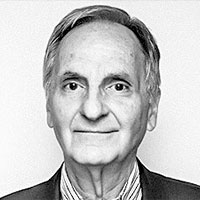 Carlos Augusto Di Prisco de Venanzi
Profesor del área de Matemáticas Aplicadas
Professor of the Applied Mathematics area
Licenciado en Matemáticas (Universidad Central de Venezuela), PhD. Matemáticas (Massachusetts Institute of Technology, USA, 1976). Segundo Vicepresidente de la Academia de Ciencias Físicas, Matemáticas y Naturales (2009-2011). Investigador del Departamento de Matemáticas del Instituto Venezolano de Investigaciones Científicas (IVIC) desde 1976. Investigador Emérito del IVIC (2007). Decano del Centro de Estudios Avanzados del IVIC 1989-1991. Docente del Departamento de Matemáticas de la Facultad de Ciencias de la Universidad Central de Venezuela desde 1976. Profesor Titular desde 1985, Jubilado desde 2003. Con su trabajo sobre diversos aspectos de la teoría de conjuntos y los fundamentos matemáticos sobre varios temas de la teoría combinatoria de conjuntos, ha publicado varios libros de texto, y artículos científicos en revistas de prestigio, como Advances in Mathematics, Journal of Symbolic Logic, Mathematical Logic Quarterly, Fundamenta Mathematicae, Proceedings of the American Mathematical Society. Ha hecho contribuciones al estudio de estructuras combinatorias relacionadas con propiedades de grandes cardinales y de propiedades combinatorias de conjuntos de números naturales y conjuntos de números reales, y sobre formas débiles del axioma de elección. Sus resultados más recientes tratan problemas relacionados con la Teoría de Ramsey. Ha dirigido más de 40 tesis de pre y postgrado. Recipiente del premio «Lorenzo Mendoza Fleury» de la Fundación Polar, 1983. Miembro del Centro de Lógica de la Universidad de Campinas, Brasil, desde 1988. Profesor invitado en Smith College (Massachusetts, 1985-1986); del Research Associate University of California, Berkeley (1992-1993); y del Centre de Recerca Matematica, Bellaterra, España, (1997-1998). Catedrático Visitante de la Universidad de Evora, Portugal, (2000); y de la Universidad de Paris VII, (2000 y 2006). Investigador Visitante del Institut Catalan de Recerca i Estudis Avançats (2002-2005); Profesor Visitante Lluis Santaló, Centre de Recerca Matemática, Barcelona. (2010); de la Universidad de Los Andes, Bogotá, Colombia (2012-2014). Fellow, del John Simon Guggenheim Memorial Foundation, (1991-1992); y de la Third World Academy of Sciences (desde 1999). Miembro Academia de Ciencias de América Latina (desde 2016).
Carlos Augusto Di Prisco de Venanzi
Profesor del área de Matemáticas Aplicadas
Professor of the Applied Mathematics area
Licenciado en Matemáticas (Universidad Central de Venezuela), PhD. Matemáticas (Massachusetts Institute of Technology, USA, 1976). Segundo Vicepresidente de la Academia de Ciencias Físicas, Matemáticas y Naturales (2009-2011). Investigador del Departamento de Matemáticas del Instituto Venezolano de Investigaciones Científicas (IVIC) desde 1976. Investigador Emérito del IVIC (2007). Decano del Centro de Estudios Avanzados del IVIC 1989-1991. Docente del Departamento de Matemáticas de la Facultad de Ciencias de la Universidad Central de Venezuela desde 1976. Profesor Titular desde 1985, Jubilado desde 2003. Con su trabajo sobre diversos aspectos de la teoría de conjuntos y los fundamentos matemáticos sobre varios temas de la teoría combinatoria de conjuntos, ha publicado varios libros de texto, y artículos científicos en revistas de prestigio, como Advances in Mathematics, Journal of Symbolic Logic, Mathematical Logic Quarterly, Fundamenta Mathematicae, Proceedings of the American Mathematical Society. Ha hecho contribuciones al estudio de estructuras combinatorias relacionadas con propiedades de grandes cardinales y de propiedades combinatorias de conjuntos de números naturales y conjuntos de números reales, y sobre formas débiles del axioma de elección. Sus resultados más recientes tratan problemas relacionados con la Teoría de Ramsey. Ha dirigido más de 40 tesis de pre y postgrado. Recipiente del premio «Lorenzo Mendoza Fleury» de la Fundación Polar, 1983. Miembro del Centro de Lógica de la Universidad de Campinas, Brasil, desde 1988. Profesor invitado en Smith College (Massachusetts, 1985-1986); del Research Associate University of California, Berkeley (1992-1993); y del Centre de Recerca Matematica, Bellaterra, España, (1997-1998). Catedrático Visitante de la Universidad de Evora, Portugal, (2000); y de la Universidad de Paris VII, (2000 y 2006). Investigador Visitante del Institut Catalan de Recerca i Estudis Avançats (2002-2005); Profesor Visitante Lluis Santaló, Centre de Recerca Matemática, Barcelona. (2010); de la Universidad de Los Andes, Bogotá, Colombia (2012-2014). Fellow, del John Simon Guggenheim Memorial Foundation, (1991-1992); y de la Third World Academy of Sciences (desde 1999). Miembro Academia de Ciencias de América Latina (desde 2016).
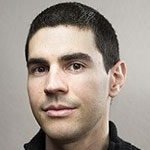 Omar Díaz Luque
Profesor del área de Fundamentos de la Física
Professor of the Fundamentals of Physics area
Doctor en Tecnologías Industriales e Informáticas por la Universidad Antonio de Nebrija. Graduado en Ciencias Físicas por la Universidad Complutense de Madrid, en la especialidad de Física Aplicada. Máster en Nanofísica y Materiales Avanzados por dicha universidad. Ha realizado diversas colaboraciones en actividades y proyectos científicos con la Universidad Complutense, el Instituto de Magnetismo Aplicado y la Universidad Antonio de Nebrija. Profesor asociado en la Escuela Politécnica Superior de la Universidad Nebrija.
Omar Díaz Luque
Profesor del área de Fundamentos de la Física
Professor of the Fundamentals of Physics area
Doctor en Tecnologías Industriales e Informáticas por la Universidad Antonio de Nebrija. Graduado en Ciencias Físicas por la Universidad Complutense de Madrid, en la especialidad de Física Aplicada. Máster en Nanofísica y Materiales Avanzados por dicha universidad. Ha realizado diversas colaboraciones en actividades y proyectos científicos con la Universidad Complutense, el Instituto de Magnetismo Aplicado y la Universidad Antonio de Nebrija. Profesor asociado en la Escuela Politécnica Superior de la Universidad Nebrija.
 Ainhoa Ercoreca Llano
Profesora del área de estadística
Professor of the Statistics area
Licenciada en CC. Económicas y Empresariales en la Universidad Complutense de Madrid. Desde 1994, profesora asociada de Estadística en la Universidad Antonio de Nebrija en el departamento de Matemáticas y Ciencias Aplicadas. Desde 2000, profesora asociada en el departamento de Estadística en la Universidad Carlos III de Madrid y desde 2006 profesora asociada en el departamento de Organización Industrial en la Universidad de Comillas.
Ainhoa Ercoreca Llano
Profesora del área de estadística
Professor of the Statistics area
Licenciada en CC. Económicas y Empresariales en la Universidad Complutense de Madrid. Desde 1994, profesora asociada de Estadística en la Universidad Antonio de Nebrija en el departamento de Matemáticas y Ciencias Aplicadas. Desde 2000, profesora asociada en el departamento de Estadística en la Universidad Carlos III de Madrid y desde 2006 profesora asociada en el departamento de Organización Industrial en la Universidad de Comillas.
 Alberto Franco De Frutos
Profesor del área de Vehículos
Professor of the Manufacturing area
Ingeniero Industrial por la UPM y Master Sc en Materiales por la Universidad de Manchester (GB). Ha desarrollado su labor profesional en las áreas de calidad, producción y dirección de operaciones en empresas internacionales de los sectores siderúrgico, auxiliar de automoción y bienes de equipo. Profesor de la Universidad Antonio de Nebrija en asignaturas de materiales y procesos. Profesor colaborador con la Universidad Carlos III.
Alberto Franco De Frutos
Profesor del área de Vehículos
Professor of the Manufacturing area
Ingeniero Industrial por la UPM y Master Sc en Materiales por la Universidad de Manchester (GB). Ha desarrollado su labor profesional en las áreas de calidad, producción y dirección de operaciones en empresas internacionales de los sectores siderúrgico, auxiliar de automoción y bienes de equipo. Profesor de la Universidad Antonio de Nebrija en asignaturas de materiales y procesos. Profesor colaborador con la Universidad Carlos III.
 Javier Freijo Martín
Profesor del área de Química
Professor of the Chemistry area
Doctor en Farmacia por la Universidad de Navarra y Master en Investigación y Desarrollo de Medicamentos. Miembro de la Sociedad Española de Química Terapéutica ha desarrollado proyectos de investigación en el diseño y síntesis de nuevas moléculas con actividad terapéutica. Desde el año 1999 ha centrado su actividad en la docencia universitaria.
Javier Freijo Martín
Profesor del área de Química
Professor of the Chemistry area
Doctor en Farmacia por la Universidad de Navarra y Master en Investigación y Desarrollo de Medicamentos. Miembro de la Sociedad Española de Química Terapéutica ha desarrollado proyectos de investigación en el diseño y síntesis de nuevas moléculas con actividad terapéutica. Desde el año 1999 ha centrado su actividad en la docencia universitaria.
 Eduardo Fuster López
Profesor del área de sistemas de propulsión
Professor in the area of propulsion systems
Ingeniero industrial por ICAI, con 12 años de experiencia en ingeniería Motorsport. Ha participado en la creación de tres equipos de carreras y ha formado parte en el desarrollo de todo tipo de vehículos de competición, desde la ingeniería hasta su aplicación en pista. Ha dirigido dos escuelas de formación de mecánicos e ingenieros de competición durante cinco años, DX Academy y MSI Race Tech Institute. Actualmente jefe de ingeniería F4 en TC Racing.
Eduardo Fuster López
Profesor del área de sistemas de propulsión
Professor in the area of propulsion systems
Ingeniero industrial por ICAI, con 12 años de experiencia en ingeniería Motorsport. Ha participado en la creación de tres equipos de carreras y ha formado parte en el desarrollo de todo tipo de vehículos de competición, desde la ingeniería hasta su aplicación en pista. Ha dirigido dos escuelas de formación de mecánicos e ingenieros de competición durante cinco años, DX Academy y MSI Race Tech Institute. Actualmente jefe de ingeniería F4 en TC Racing.
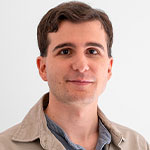 Sergio Galán Martín
Profesor del área de Matemáticas Aplicadas
Professor of the Applied Mathematics area
Graduado en Ingeniería Informática y Matemáticas por la Universidad Autónoma de Madrid. Máster en Ciberseguridad por la Universidad Carlos III de Madrid. Ha recibido varias becas y condecoraciones, como el premio al mejor expediente académico tanto de su titulación de grado como la de máster, o varias becas por rendimiento académico excelente de la Comunidad Autónoma de Madrid. Ha realizado trabajo de investigación en criptografía y privacidad, habiendo publicado recientemente un artículo en la revista IEEE Transactions on Dependable and Secure Computing.
Sergio Galán Martín
Profesor del área de Matemáticas Aplicadas
Professor of the Applied Mathematics area
Graduado en Ingeniería Informática y Matemáticas por la Universidad Autónoma de Madrid. Máster en Ciberseguridad por la Universidad Carlos III de Madrid. Ha recibido varias becas y condecoraciones, como el premio al mejor expediente académico tanto de su titulación de grado como la de máster, o varias becas por rendimiento académico excelente de la Comunidad Autónoma de Madrid. Ha realizado trabajo de investigación en criptografía y privacidad, habiendo publicado recientemente un artículo en la revista IEEE Transactions on Dependable and Secure Computing.
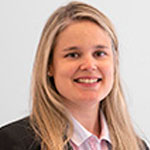 Aránzazu Garitagoitia Cid
Coordinadora y profesora del área de Materiales
Coordinator and professor of the Materials area
Doctora en Física de Materiales y Licenciada en Ciencias Químicas. Intensa trayectoria en investigación, industria alemana y docencia, desarrollada principalmente en Dresde (Alemania). Profesora en el seminario Nanoanalytik, organizado por la Deutsche Gesellschaft für Materialkünde (DGM), asociación alemana de Ciencias de Materiales. Investigadora asistente en el proyecto industrial Estudio de las características y aplicaciones del detector EsB en colaboración con el fabricante de microscopios electrónicos y lentes Carl Zeiss GmbH. Publicaciones: A. Garitagoitia Cid, R. Rosenkranz, M. Löffler, A. Clausner, Y. Standke, E. Zschech, Ultramicroscopy, 2018, 195, 47-52. A. Garitagoitia Cid, E. Moayedi, R. Rosenkranz, A. Clausner, K. Pakbaz, E. Zschech, IEEE Transactions on Device and Materials Reliability, 2016, Vol. 16, Nº 4, 461-464.
Aránzazu Garitagoitia Cid
Coordinadora y profesora del área de Materiales
Coordinator and professor of the Materials area
Doctora en Física de Materiales y Licenciada en Ciencias Químicas. Intensa trayectoria en investigación, industria alemana y docencia, desarrollada principalmente en Dresde (Alemania). Profesora en el seminario Nanoanalytik, organizado por la Deutsche Gesellschaft für Materialkünde (DGM), asociación alemana de Ciencias de Materiales. Investigadora asistente en el proyecto industrial Estudio de las características y aplicaciones del detector EsB en colaboración con el fabricante de microscopios electrónicos y lentes Carl Zeiss GmbH. Publicaciones: A. Garitagoitia Cid, R. Rosenkranz, M. Löffler, A. Clausner, Y. Standke, E. Zschech, Ultramicroscopy, 2018, 195, 47-52. A. Garitagoitia Cid, E. Moayedi, R. Rosenkranz, A. Clausner, K. Pakbaz, E. Zschech, IEEE Transactions on Device and Materials Reliability, 2016, Vol. 16, Nº 4, 461-464.
 Javier García Rojas
Profesor del área de Ingeniería Eléctrica y Electrónica
Professor in the area of Electrical and Electronic Engineering
Javier García Rojas
Profesor del área de Ingeniería Eléctrica y Electrónica
Professor in the area of Electrical and Electronic Engineering
 Jesús García-Moreno Caraballo
Profesor del área de Expresión Gráfica
Professor of the Graphic Expression area
Ingeniero Industrial por la Universidad Politécnica de Madrid. Ha trabajado como investigador en IMDEA Materiales en proyectos nacionales y en el sector privado como ingeniero de diseño y fabricación de vehículos especiales (UMTVs, Racetrailers, Expedition trucks, Unidades móviles de mamografía) y de estructuras metálicas móviles (grúas de acceso a fachadas). Ha dirigido dos ediciones del proyecto MotoStudent, coordinando el diseño y fabricación de una moto de competición por parte de los alumnos. Actualmente finaliza su tesis doctoral en el grupo MOD3RN de la Universidad Nebrija, en el ámbito de sistemas inteligentes para la optimización de la fabricación aditiva metálica, siendo autor de publicaciones en revistas de impacto.
Jesús García-Moreno Caraballo
Profesor del área de Expresión Gráfica
Professor of the Graphic Expression area
Ingeniero Industrial por la Universidad Politécnica de Madrid. Ha trabajado como investigador en IMDEA Materiales en proyectos nacionales y en el sector privado como ingeniero de diseño y fabricación de vehículos especiales (UMTVs, Racetrailers, Expedition trucks, Unidades móviles de mamografía) y de estructuras metálicas móviles (grúas de acceso a fachadas). Ha dirigido dos ediciones del proyecto MotoStudent, coordinando el diseño y fabricación de una moto de competición por parte de los alumnos. Actualmente finaliza su tesis doctoral en el grupo MOD3RN de la Universidad Nebrija, en el ámbito de sistemas inteligentes para la optimización de la fabricación aditiva metálica, siendo autor de publicaciones en revistas de impacto.
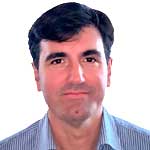 Jorge González de la Fuente
Director del Grado en Ingeniería en Tecnologías Industriales
Jorge González de la Fuente
Director del Grado en Ingeniería en Tecnologías IndustrialesProfesor del área de Ingeniería Eléctrica y Electrónica Director of the Bachelor's Degree in Industrial Technology Engineering
Professor of the area of Electrical and Electronic Engineering Ingeniero Industrial Superior por la Universidad de Valladolid, certificado en Project Management por el Project Management Institute, Coach profesional por ASESCO, Mentor profesional con más de 5 años de experiencia con jóvenes universitarios en sus procesos de incorporación al mercado laboral, emprendedor y fundador de NextPlay, empresa del sector educativo con una solución que permite que los jóvenes alumnos reciban una orientación formativo-laboral adecuada a sus necesidades, con casi 20 años de experiencia internacional en puestos de responsabilidad como Consultor, Project Manager, Key Account Manager y Director Comercial en los sectores de Automoción, Logística, Alimentación y Metalurgia.
 Raquel González Nieto
Profesora del área de Procesos Industriales
Professor of the Industrial Processes area
Ingeniera Industrial Mecánica por la Universidad de Castilla la Mancha. Máster Oficial Universitario en Energías Renovables y Eficiencia Energética por la UDIMA. Recibió el premio ACCIONA al mejor proyecto fin de carrera del año 2015. Máster Universitario en Profesor de Educación Secundaria Obligatoria y Bachillerato, Formación Profesional y Enseñanza de Idiomas. En el ámbito laboral ha trabajado como ingeniera en Creara Consultores S.L en distintos puestos en torno a las auditorías energéticas. Actualmente desarrolla su labor como docente en formación profesional en el departamento de Mecanizado y Mantenimiento del Colegio Salesianos Atocha.
Raquel González Nieto
Profesora del área de Procesos Industriales
Professor of the Industrial Processes area
Ingeniera Industrial Mecánica por la Universidad de Castilla la Mancha. Máster Oficial Universitario en Energías Renovables y Eficiencia Energética por la UDIMA. Recibió el premio ACCIONA al mejor proyecto fin de carrera del año 2015. Máster Universitario en Profesor de Educación Secundaria Obligatoria y Bachillerato, Formación Profesional y Enseñanza de Idiomas. En el ámbito laboral ha trabajado como ingeniera en Creara Consultores S.L en distintos puestos en torno a las auditorías energéticas. Actualmente desarrolla su labor como docente en formación profesional en el departamento de Mecanizado y Mantenimiento del Colegio Salesianos Atocha.
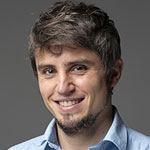 Carlos Gumiel Vindel
Vicedecano de investigación de la EPS
Carlos Gumiel Vindel
Vicedecano de investigación de la EPSProfesor del área de Materiales Vice Dean of Research at the EPS
Professor of the Materials area Doctor por la Universidad Politécnica de Madrid y Licenciado en Ciencias Químicas por la Universidad Complutense de Madrid, con un Máster en Nanociencia y Nanomateriales expedido por la misma universidad. Cuenta con más de diez años de experiencia investigadora desarrollada en colaboración con el Instituto de Cerámica y Vidrio del CSIC, centrada en la fabricación y el procesamiento sostenible de nanomateriales cerámicos para su aplicación en electrónica y energía. A nivel internacional, cuenta con una estancia de investigación en la Universidad de Hasselt (Bélgica) y ha sido Profesor Visitante en la Universidad de Limerick (Irlanda) y en la Universidad de Módena y Reggio Emilia (Italia). Forma parte del Comité Organizador y Científico del congreso bienal de "Electrocerámica" y es secretario de la sección "Cerámicas para Energía y Electrónica" de la Sociedad Española de Cerámica y Vidrio. Fue galardonado con el Primer Premio a la mejor ponencia en el Congreso Internacional "The 7th Global Conference on Materials Science and Engineering”, celebrado en Xian (China) en el 2018, y con el 2º Premio en el V Concurso de Divulgación Científica de la Universidad Complutense de Madrid por el Proyecto de Innovación y Mejora de la Calidad Docente en el 2014. Está acreditado a las figuras de Profesor Contratado Doctor, Profesor de Universidad Privada y Profesor Titular de Universidad por la ANECA. En el ámbito docente, lleva impartiendo docencia desde el año 2013, habiendo sido Profesor Colaborador en la Universidad Complutense de Madrid y en la Universidad Politécnica de Madrid, respectivamente. Además, fue Profesor Asociado en el Dpto. de Ciencia e Ingeniería de Materiales e Ingeniería Química de la Universidad Carlos III de Madrid entre el 2019 y el 2023.
 Jesús Guzmán Mínguez
Profesor de las áreas de Química y de Materiales
Professor of the areas of Chemistry and Materials
Doctor en Física de los Materiales por la Universidad Autónoma de Madrid (UAM) y Licenciado en Ciencias Químicas por la Universidad Complutense de Madrid (UCM). Máster en Ciencia y Tecnología de Nuevos Materiales (CyTNM) por la Universidad de Sevilla (US). El doctorado fue realizado en el Instituto de Cerámica y Vidrio que pertenece al CSIC. Acreditado para las figuras docentes de Profesor Contratado Doctor y Profesor de Universidad Privada por la ANECA. Experto en el procesamiento de cerámicas funcionales con propiedades magnéticas obtenidas por métodos sostenibles como la síntesis de combustión a baja temperatura, así como el diseño de nuevos imanes permanentes que son potencialmente útiles para la sustitución de imanes basados en Tierras Raras. Miembro de la Sociedad Española de Cerámica y Vidrio desde 2017. Primer premio a la mejor ponencia en el Congreso de Jóvenes Investigadores del ICV-CSIC (2017). Investigador en el Grupo de Materiales y Fabricación Aditiva (MOD3RN) y profesor en la Escuela Politécnica Superior de la Universidad Nebrija.
Jesús Guzmán Mínguez
Profesor de las áreas de Química y de Materiales
Professor of the areas of Chemistry and Materials
Doctor en Física de los Materiales por la Universidad Autónoma de Madrid (UAM) y Licenciado en Ciencias Químicas por la Universidad Complutense de Madrid (UCM). Máster en Ciencia y Tecnología de Nuevos Materiales (CyTNM) por la Universidad de Sevilla (US). El doctorado fue realizado en el Instituto de Cerámica y Vidrio que pertenece al CSIC. Acreditado para las figuras docentes de Profesor Contratado Doctor y Profesor de Universidad Privada por la ANECA. Experto en el procesamiento de cerámicas funcionales con propiedades magnéticas obtenidas por métodos sostenibles como la síntesis de combustión a baja temperatura, así como el diseño de nuevos imanes permanentes que son potencialmente útiles para la sustitución de imanes basados en Tierras Raras. Miembro de la Sociedad Española de Cerámica y Vidrio desde 2017. Primer premio a la mejor ponencia en el Congreso de Jóvenes Investigadores del ICV-CSIC (2017). Investigador en el Grupo de Materiales y Fabricación Aditiva (MOD3RN) y profesor en la Escuela Politécnica Superior de la Universidad Nebrija.
 Ingo Kaiser
Profesor del área de Fundamentos de la Física
Professor of the Fundamentals of Physics area
Doctor Ingeniero por la Facultad de Ingeniería Mecánica de la Universidad Hannover (Alemania). Colaborador científico e investigador asistente en la Universidad de Hannover (Alemania) y en el Centro Aeroespacial Alemán (DLR) Oberpfaffenhofen (Alemania, cerca de Munich). Además, era vice-director del DLR_School_Lab (Laboratorio de Escuela) Oberpfaffenhofen. Su investigación está focalizada en la simulación computacional de vehículos ferroviarios. Sus estudios se centran en la modelización de ejes montados y carriles como cuerpos flexibles y en la modelización detallada del contacto rueda - carril. Su investigación científica incluye sistemas multicuerpos, elementos finitos y métodos numéricos. Más de once publicaciones en revistas científicas JCR. Revisor de artículos científicos para varias revistas científicas (Vehicle System Dynamics, Multibody System Dynamics, Wear, etc.). Un sexenio de investigación reconocido.
En 2004 recibió el IUTAM Bureau Prize (premio de la oficina de la International Union of Theoretical and Applied Mechanics para investigadores jóvenes) por su trabajo “The running behaviour of an elastic wheelset” presentado en el ICTAM 2004 (International Congress of Theoretical and Applied Mechanics) en Warszawa (Polonia). Presentó su trabajo científico también en los congresos de IAVSD (International Association for Vehicle System Dynamics) en 2005 en Milano (Italia), en 2011 en Manchester (Reino Unido) y 2015 en Graz (Austria) y en las conferencias internacionales de tecnología ferroviaria (International Conference on Railway Technology) en 2012 en Las Palmas de Gran Canaria, en 2016 en Cagliari (Italia) y en 2018 en Sitges. Ponente invitado en la International Conference on Railway Technology en 2018.
Comenzó su actividad docente en el año 2012 como docente colaborador habitual en la Rolling Stock Summer School, celebrada en Kraków (Polonia) en 2012 y 2014, y en Lecco (Italia, cerca de Milano) en 2016, donde presentó sus estudios sobre la modelización del contacto rueda - carril y el uso del programa multicuerpo profesional Simpack. Es profesor de la Universidad Nebrija desde el año 2018.
Ingo Kaiser
Profesor del área de Fundamentos de la Física
Professor of the Fundamentals of Physics area
Doctor Ingeniero por la Facultad de Ingeniería Mecánica de la Universidad Hannover (Alemania). Colaborador científico e investigador asistente en la Universidad de Hannover (Alemania) y en el Centro Aeroespacial Alemán (DLR) Oberpfaffenhofen (Alemania, cerca de Munich). Además, era vice-director del DLR_School_Lab (Laboratorio de Escuela) Oberpfaffenhofen. Su investigación está focalizada en la simulación computacional de vehículos ferroviarios. Sus estudios se centran en la modelización de ejes montados y carriles como cuerpos flexibles y en la modelización detallada del contacto rueda - carril. Su investigación científica incluye sistemas multicuerpos, elementos finitos y métodos numéricos. Más de once publicaciones en revistas científicas JCR. Revisor de artículos científicos para varias revistas científicas (Vehicle System Dynamics, Multibody System Dynamics, Wear, etc.). Un sexenio de investigación reconocido.
En 2004 recibió el IUTAM Bureau Prize (premio de la oficina de la International Union of Theoretical and Applied Mechanics para investigadores jóvenes) por su trabajo “The running behaviour of an elastic wheelset” presentado en el ICTAM 2004 (International Congress of Theoretical and Applied Mechanics) en Warszawa (Polonia). Presentó su trabajo científico también en los congresos de IAVSD (International Association for Vehicle System Dynamics) en 2005 en Milano (Italia), en 2011 en Manchester (Reino Unido) y 2015 en Graz (Austria) y en las conferencias internacionales de tecnología ferroviaria (International Conference on Railway Technology) en 2012 en Las Palmas de Gran Canaria, en 2016 en Cagliari (Italia) y en 2018 en Sitges. Ponente invitado en la International Conference on Railway Technology en 2018.
Comenzó su actividad docente en el año 2012 como docente colaborador habitual en la Rolling Stock Summer School, celebrada en Kraków (Polonia) en 2012 y 2014, y en Lecco (Italia, cerca de Milano) en 2016, donde presentó sus estudios sobre la modelización del contacto rueda - carril y el uso del programa multicuerpo profesional Simpack. Es profesor de la Universidad Nebrija desde el año 2018.
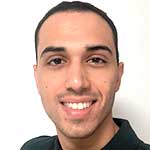 Javier Lázaro Ortega
Profesor del área de Materiales
Professor of the Materials area
Graduado en Ingeniería Aeroespacial por la Universidad Politécnica de Madrid. Máster Universitario en Ingeniería Aeroespacial por la Universidad Europea de Madrid en enero de 2024. Consultor de Ingeniería de cálculo y simulación durante tres años, responsable de la consultaría de software de cálculos estructurales (FEM) y fluidodinámicos (CFD). Tutor privado de decenas de estudiantes preuniversitarios en materias de ciencias durante ocho años.
Javier Lázaro Ortega
Profesor del área de Materiales
Professor of the Materials area
Graduado en Ingeniería Aeroespacial por la Universidad Politécnica de Madrid. Máster Universitario en Ingeniería Aeroespacial por la Universidad Europea de Madrid en enero de 2024. Consultor de Ingeniería de cálculo y simulación durante tres años, responsable de la consultaría de software de cálculos estructurales (FEM) y fluidodinámicos (CFD). Tutor privado de decenas de estudiantes preuniversitarios en materias de ciencias durante ocho años.
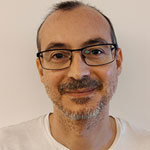 Carlos López Lázaro
Profesor del área de Informática
Professor of the Computing area
Ingeniero Aeronáutico. Experto en C++, trabaja continuamente también en otras tecnologías como Python o Fortran, así como Qt, VTK, HDF5 o SQL. Más de veinte años de experiencia en el desarrollo de métodos y herramientas en diferentes campos como aeroelasticidad, mallado, postproceso, materiales compuestos o análisis de estructuras. Actualmente trabajando en un equipo internacional en Airbus Operations como: Technical advisor in Stress Methods and Tools; Arquitecto de sistema para temas de herramientas de cálculo, metodologías de estrés y tratatimiento de datos. Arquitecto de la siguiente generación de la herramienta de cálculo de estreses. Otros puestos han sido como Product Owner o líder técnico de equipos transnacionales de más de veinte personas.
Carlos López Lázaro
Profesor del área de Informática
Professor of the Computing area
Ingeniero Aeronáutico. Experto en C++, trabaja continuamente también en otras tecnologías como Python o Fortran, así como Qt, VTK, HDF5 o SQL. Más de veinte años de experiencia en el desarrollo de métodos y herramientas en diferentes campos como aeroelasticidad, mallado, postproceso, materiales compuestos o análisis de estructuras. Actualmente trabajando en un equipo internacional en Airbus Operations como: Technical advisor in Stress Methods and Tools; Arquitecto de sistema para temas de herramientas de cálculo, metodologías de estrés y tratatimiento de datos. Arquitecto de la siguiente generación de la herramienta de cálculo de estreses. Otros puestos han sido como Product Owner o líder técnico de equipos transnacionales de más de veinte personas.
 Andrea Manzaneque Nieto
Profesora de las áreas de Matemáticas Aplicadas y Fundamentos de la Física
Professor of the areas of Applied Mathematics and Fundamentals of Physics
Graduada en Ciencias Físicas por la Universidad Complutense de Madrid en la modalidad de física fundamental. Máster interuniversitario en Física Nuclear. Desarrolló su Trabajo de Fin de Máster en la UCM en colaboración con la Universidad de Granada realizando simulaciones Monte Carlo para tratamientos de radioterapia con distintos modelos matemáticos de crecimiento y supervivencia celular. Ha tenido contacto con la radio física hospitalaria en el Hospital Gregorio Marañón durante el periodo de prácticas universitario. Así mismo, posee dos años de experiencia docente impartida en academia a nivel universitario.
Andrea Manzaneque Nieto
Profesora de las áreas de Matemáticas Aplicadas y Fundamentos de la Física
Professor of the areas of Applied Mathematics and Fundamentals of Physics
Graduada en Ciencias Físicas por la Universidad Complutense de Madrid en la modalidad de física fundamental. Máster interuniversitario en Física Nuclear. Desarrolló su Trabajo de Fin de Máster en la UCM en colaboración con la Universidad de Granada realizando simulaciones Monte Carlo para tratamientos de radioterapia con distintos modelos matemáticos de crecimiento y supervivencia celular. Ha tenido contacto con la radio física hospitalaria en el Hospital Gregorio Marañón durante el periodo de prácticas universitario. Así mismo, posee dos años de experiencia docente impartida en academia a nivel universitario.
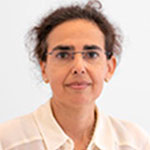 Carolina Mendoza Parra
Directora del Grado en Matemáticas Aplicadas
Carolina Mendoza Parra
Directora del Grado en Matemáticas AplicadasProfesora del área de Matemáticas Director of the Degree in Applied Mathematics
Professor of the Mathematics area Doctora por la Universidad de Navarra. Actualmente trabaja en flujos geofísicos en oceános y atmósfera. En particular, en el desarrollo de descriptores Lagrangianos para localizar estructuras coherentes en la superficie del Mar mediante datos satelitales. Acreditada como Profesor titular. Ha realizado estancias post-doctorales en el Instituto Nazionalle di Ottica (Florencia) Italia trabajando en sincronización de cadenas de osciladores, en el Instituto Max-Planck de Sistemas Complejos (Dresde)-Alemania y como profesor visitante en la Facultad de Earth, Ocean, & Environment de la Universidad de Delaware.
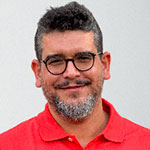 Carlos Mestre Cebrián
Profesor del área de Fundamentos de Informática
Professor of the Computer Fundamentals area
Ingeniero técnico en telecomunicaciones especialidad en telemática por la Universidad Politécnica de Valencia. Bachelors Degree en “Mobile communications & Electronics” por el antiguo AIT (Athlone Institute of Technology), actualmente TUS (Technological University of the Shannon). Tras siete años como ingeniero de software a tiempo completo en 2020 empezó a impartir formación para el Servicio Público de Empleo Estatal (SEPE) en la provincia de Guadalajara (certificados de profesionalidad impartidos, IFCT0310 - Administración de bases de datos; IFCT0609 - Programación de sistemas informáticos), además de otros cursos no oficiales como alfabetización digital, administración de BBDD y SAP y para entidades como Cruz Roja.
Carlos Mestre Cebrián
Profesor del área de Fundamentos de Informática
Professor of the Computer Fundamentals area
Ingeniero técnico en telecomunicaciones especialidad en telemática por la Universidad Politécnica de Valencia. Bachelors Degree en “Mobile communications & Electronics” por el antiguo AIT (Athlone Institute of Technology), actualmente TUS (Technological University of the Shannon). Tras siete años como ingeniero de software a tiempo completo en 2020 empezó a impartir formación para el Servicio Público de Empleo Estatal (SEPE) en la provincia de Guadalajara (certificados de profesionalidad impartidos, IFCT0310 - Administración de bases de datos; IFCT0609 - Programación de sistemas informáticos), además de otros cursos no oficiales como alfabetización digital, administración de BBDD y SAP y para entidades como Cruz Roja.
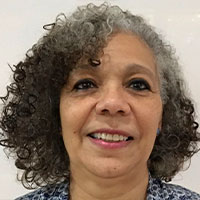 Brígida Molina Carabaño
Profesora del área de Matemáticas
Professor of the Mathematics area
Licenciada y Magister en Matemáticas por la Universidad Central de Venezuela (UCV). Doctorado en Ciencias de la Computación por la UCV en cooperación con el Laboratorio LIP6 de la Universidad Pierre y Marie Curie, París, Francia. Postdoctorado en la Universidad de Ciencias y Tecnologías de Lille, Francia. Ha impartido clases en el área de matemáticas aplicadas, tanto en pregrado como en postgrado, en la UCV y en universidades privadas de Lima, Perú. Ha sido profesora invitada en diversas instituciones y conferencias internacionales. Sus intereses de investigación incluyen algoritmos para cálculos a gran escala, simulación de yacimientos y métodos del álgebra lineal para el análisis de datos. Ha publicado en revistas científicas indexadas.
Brígida Molina Carabaño
Profesora del área de Matemáticas
Professor of the Mathematics area
Licenciada y Magister en Matemáticas por la Universidad Central de Venezuela (UCV). Doctorado en Ciencias de la Computación por la UCV en cooperación con el Laboratorio LIP6 de la Universidad Pierre y Marie Curie, París, Francia. Postdoctorado en la Universidad de Ciencias y Tecnologías de Lille, Francia. Ha impartido clases en el área de matemáticas aplicadas, tanto en pregrado como en postgrado, en la UCV y en universidades privadas de Lima, Perú. Ha sido profesora invitada en diversas instituciones y conferencias internacionales. Sus intereses de investigación incluyen algoritmos para cálculos a gran escala, simulación de yacimientos y métodos del álgebra lineal para el análisis de datos. Ha publicado en revistas científicas indexadas.
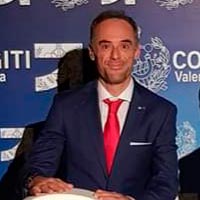 Salvador Paris Ferrer
Profesor del área de Vehículos
Professor of the Vehicle area
Ingeniero Técnico Industrial Mecánico con especialización en construcción de máquinas por la Universidad Politécnica de Valencia. Más de 25 años de experiencia en el ámbito docente, impartiendo cursos para ingenieros en valoraciones de daños y homologaciones de reformas en vehículos. Profesor adjunto en la bolsa de trabajo del Departamento de Ingeniería Mecánica y de Materiales en Procesos de Fabricación de la Universidad Politécnica de Valencia. Asesor técnico de la Cátedra “Demesol” de energía solar fotovoltaica en la Universidad Miguel Hernández de Elx. Fundador de la empresa “Inpertec, Ingeniería y Proyectos S.L.”, ejerciendo como ingeniero de defensa jurídica, perito tasador de daños en automóviles, e ingeniero especialista en legalizaciones de reformas en vehículos.
Salvador Paris Ferrer
Profesor del área de Vehículos
Professor of the Vehicle area
Ingeniero Técnico Industrial Mecánico con especialización en construcción de máquinas por la Universidad Politécnica de Valencia. Más de 25 años de experiencia en el ámbito docente, impartiendo cursos para ingenieros en valoraciones de daños y homologaciones de reformas en vehículos. Profesor adjunto en la bolsa de trabajo del Departamento de Ingeniería Mecánica y de Materiales en Procesos de Fabricación de la Universidad Politécnica de Valencia. Asesor técnico de la Cátedra “Demesol” de energía solar fotovoltaica en la Universidad Miguel Hernández de Elx. Fundador de la empresa “Inpertec, Ingeniería y Proyectos S.L.”, ejerciendo como ingeniero de defensa jurídica, perito tasador de daños en automóviles, e ingeniero especialista en legalizaciones de reformas en vehículos.
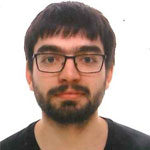 Álvaro Pereira Albert
Profesor del área de Matemáticas
Professor of Mathematics area
Graduado en Matemáticas por la Universidad Autónoma de Madrid. Está cursando actualmente el Máster universitario en formación del profesorado de educación secundaria obligatoria y bachillerato, formación profesional y enseñanzas de idiomas. Profesor asociado en la Escuela Politécnica Superior de la Universidad Nebrija.
Álvaro Pereira Albert
Profesor del área de Matemáticas
Professor of Mathematics area
Graduado en Matemáticas por la Universidad Autónoma de Madrid. Está cursando actualmente el Máster universitario en formación del profesorado de educación secundaria obligatoria y bachillerato, formación profesional y enseñanzas de idiomas. Profesor asociado en la Escuela Politécnica Superior de la Universidad Nebrija.
 Domingo Alberto Quiroz Rodríguez
Profesor del área de Matemáticas
Professor of Mathematics area
Licenciado en Matemáticas por la Universidad Central de Venezuela y Doctor en Matemáticas por la UCV en cooperación con el Laboratorio LRI de la actual Universidad Paris-Saclay, con equivalencia otorgada por la Universidad Carlos III. Docente de matemáticas de la Universidad Simón Bolívar, Escuela Politécnica del Litoral y Universidad Central de Venezuela. Coordinador académico de la carrera de Matemáticas de la USB. Profesor invitado en el Laboratoire de Combinatoire et d’Informatique Mathématique de la Université du Québec à Montréal 2011. Su trabajo se ha enfocado en la teoría espectral de grafos, combinatoria aditiva y teoría de Ramsey, con publicaciones científicas en revistas indexadas como Discrete Mathematics, Axioms, Kragujevac Journal of Mathematics y Applied Mathematics and Computer Science. Ha dirigido numerosas tesis de licenciatura, maestría y doctorado, contribuyendo a la formación de nuevas generaciones de matemáticos.
Domingo Alberto Quiroz Rodríguez
Profesor del área de Matemáticas
Professor of Mathematics area
Licenciado en Matemáticas por la Universidad Central de Venezuela y Doctor en Matemáticas por la UCV en cooperación con el Laboratorio LRI de la actual Universidad Paris-Saclay, con equivalencia otorgada por la Universidad Carlos III. Docente de matemáticas de la Universidad Simón Bolívar, Escuela Politécnica del Litoral y Universidad Central de Venezuela. Coordinador académico de la carrera de Matemáticas de la USB. Profesor invitado en el Laboratoire de Combinatoire et d’Informatique Mathématique de la Université du Québec à Montréal 2011. Su trabajo se ha enfocado en la teoría espectral de grafos, combinatoria aditiva y teoría de Ramsey, con publicaciones científicas en revistas indexadas como Discrete Mathematics, Axioms, Kragujevac Journal of Mathematics y Applied Mathematics and Computer Science. Ha dirigido numerosas tesis de licenciatura, maestría y doctorado, contribuyendo a la formación de nuevas generaciones de matemáticos.
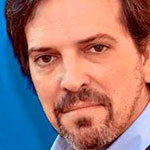 Oscar Arístides Redondo Martínez de Pinillos
Profesor del área de competencias profesionales
Professor of the area of professional skills
Licenciado en Sociología por la Universidad Complutense de Madrid, Master en Gestión de la Calidad por la EOI (Escuela de Organización Industrial) y Master en Gestión Comercial y Marketing por ESIC Business School. Es consultor y formador en Estrategia, Marketing y Operaciones. Ha sido Director de Organización y Marketing en AFAR-4 y consultor en diversas organizaciones, conduciendo proyectos en España y en el extranjero (Guatemala, Reino Unido, Vietnam). Es profesor en la Universidad de Nebrija impartiendo clases de Competencias Profesionales. Profesor y Director de programas en organizaciones como Formato educativo, IE University, ESIC y otras. En la actualidad es Socio Director de BESSER Consulting.
Oscar Arístides Redondo Martínez de Pinillos
Profesor del área de competencias profesionales
Professor of the area of professional skills
Licenciado en Sociología por la Universidad Complutense de Madrid, Master en Gestión de la Calidad por la EOI (Escuela de Organización Industrial) y Master en Gestión Comercial y Marketing por ESIC Business School. Es consultor y formador en Estrategia, Marketing y Operaciones. Ha sido Director de Organización y Marketing en AFAR-4 y consultor en diversas organizaciones, conduciendo proyectos en España y en el extranjero (Guatemala, Reino Unido, Vietnam). Es profesor en la Universidad de Nebrija impartiendo clases de Competencias Profesionales. Profesor y Director de programas en organizaciones como Formato educativo, IE University, ESIC y otras. En la actualidad es Socio Director de BESSER Consulting.
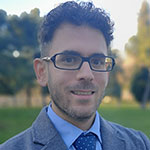 Miguel Ángel Reyes Belmonte
Coordinador y profesor de las áreas de Fundamentos de la Física y de Energía
Coordinator and professor of the areas of Fundamentals of Physics and Energy
Doctor Ingeniero Industrial y Máster en Motores de Combustión Interna Alternativos por la Universidad Politécnica de Valencia (UPV). Más de 10 años de experiencia profesional en el sector de la automoción, simulación de sistemas energéticos complejos, turbomaquinaria, análisis CFD, optimización termodinámica y energías renovables.
Profesor universitario acreditado a las figuras de Titular de Universidad, Contratado Doctor y Profesor de Universidad Privada por la ANECA. Dos sexenios de investigación reconocidos y acreditación para la docencia universitaria en inglés. Amplia experiencia docente y de supervisión con más de 50 trabajos académicos entre trabajos fin de grado (TFG), fin de máster (TFM) y tesis doctorales.
Colaborador científico para la Agencia de Certificación en Innovación Española (ACIE), editor de varios números especiales en revistas del ramo de la energía y autor de más de 40 publicaciones científicas en revistas indexadas y congresos internacionales. Participación en más de 15 proyectos de investigación a nivel europeo, nacional, regional y contratos con empresas en el ámbito de la automoción y la energía.
Miguel Ángel Reyes Belmonte
Coordinador y profesor de las áreas de Fundamentos de la Física y de Energía
Coordinator and professor of the areas of Fundamentals of Physics and Energy
Doctor Ingeniero Industrial y Máster en Motores de Combustión Interna Alternativos por la Universidad Politécnica de Valencia (UPV). Más de 10 años de experiencia profesional en el sector de la automoción, simulación de sistemas energéticos complejos, turbomaquinaria, análisis CFD, optimización termodinámica y energías renovables.
Profesor universitario acreditado a las figuras de Titular de Universidad, Contratado Doctor y Profesor de Universidad Privada por la ANECA. Dos sexenios de investigación reconocidos y acreditación para la docencia universitaria en inglés. Amplia experiencia docente y de supervisión con más de 50 trabajos académicos entre trabajos fin de grado (TFG), fin de máster (TFM) y tesis doctorales.
Colaborador científico para la Agencia de Certificación en Innovación Española (ACIE), editor de varios números especiales en revistas del ramo de la energía y autor de más de 40 publicaciones científicas en revistas indexadas y congresos internacionales. Participación en más de 15 proyectos de investigación a nivel europeo, nacional, regional y contratos con empresas en el ámbito de la automoción y la energía.
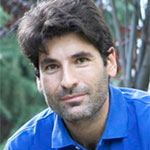 Juan Rubio Gómez
Profesor del área de Expresión Gráfica
Professor of the area of Graphic Expression
Licenciado en Ingeniería Industrial por la Universidad Nebrija. Máster en Tecnologías de Edificación Sostenible y Energías renovables por la Universidad Nebrija. Master's Degree in Numerical Simulation in Engineering with ANSYS, por la UPM. Part Qualified European Patent Attorney (EPA) por la Oficina de Patentes Europea (EPO).
Especialista en propiedad intelectual, en la tramitación de solicitudes de patentes, así como en asesorar y ofrecer consultoría a clientes sobre la estrategia de IP.
En la Universidad Nebrija, dentro de la Escuela Politécnica Superior, tutor académico de prácticas profesionales, y coordinador y profesor del área de Expresión gráfica.
Investigación las áreas del cálculo de estructuras mediante FEM, en el desarrollo, e implantación de un nuevo sistema de climatización y en la implantación de instalaciones renovables en la edificación.
Juan Rubio Gómez
Profesor del área de Expresión Gráfica
Professor of the area of Graphic Expression
Licenciado en Ingeniería Industrial por la Universidad Nebrija. Máster en Tecnologías de Edificación Sostenible y Energías renovables por la Universidad Nebrija. Master's Degree in Numerical Simulation in Engineering with ANSYS, por la UPM. Part Qualified European Patent Attorney (EPA) por la Oficina de Patentes Europea (EPO).
Especialista en propiedad intelectual, en la tramitación de solicitudes de patentes, así como en asesorar y ofrecer consultoría a clientes sobre la estrategia de IP.
En la Universidad Nebrija, dentro de la Escuela Politécnica Superior, tutor académico de prácticas profesionales, y coordinador y profesor del área de Expresión gráfica.
Investigación las áreas del cálculo de estructuras mediante FEM, en el desarrollo, e implantación de un nuevo sistema de climatización y en la implantación de instalaciones renovables en la edificación.
 Rosario Rubio San Miguel
Profesora del área de Matemáticas
Professor of the Mathematics area
Doctora en Ciencias Matemáticas en enero de 2001 por la Universidad de Cantabria. Evaluación positiva de ANECA en las figuras de profesor Contratado Doctor y Profesor de Universidad Privada en Abril de 2004.Ha publicado en diversas revistas indexadas, capítulos de libros editados por editoriales prestigiosas y en conferencias internacionales en el Área del Álgebra Computacional. Desde febrero de 2001 es profesora en la Universidad Antonio de Nebrija.
Rosario Rubio San Miguel
Profesora del área de Matemáticas
Professor of the Mathematics area
Doctora en Ciencias Matemáticas en enero de 2001 por la Universidad de Cantabria. Evaluación positiva de ANECA en las figuras de profesor Contratado Doctor y Profesor de Universidad Privada en Abril de 2004.Ha publicado en diversas revistas indexadas, capítulos de libros editados por editoriales prestigiosas y en conferencias internacionales en el Área del Álgebra Computacional. Desde febrero de 2001 es profesora en la Universidad Antonio de Nebrija.
 Castor Salgado Soneira
Profesor del área de Química
Professor of the Chemistry area
Doctor en Ciencia y Tecnología por la Universidad Internacional Menéndez Pelayo. Licenciado en CC. Químicas por la Universidad Complutense (UCM) en 2013. En el curso 2014-2015 realizó un Máster de Alta Especialización en Plásticos y Caucho. Entre 2015 y 2018 realizó la Tesis Doctoral en Ciencia y Tecnología, en el Instituto de Ciencia y Tecnología de Polímeros del CSIC (ICTP-CSIC). Realizó una estancia de investigación en el Instituto Tecnológico de Massachusetts (MIT) en Cambridge (EEUU). Desde 2014 ha publicado 13 artículos científicos JCR (9 Q1, 90%), 6 de ellos como primer autor, índice-h: 9 (Scopus).
Castor Salgado Soneira
Profesor del área de Química
Professor of the Chemistry area
Doctor en Ciencia y Tecnología por la Universidad Internacional Menéndez Pelayo. Licenciado en CC. Químicas por la Universidad Complutense (UCM) en 2013. En el curso 2014-2015 realizó un Máster de Alta Especialización en Plásticos y Caucho. Entre 2015 y 2018 realizó la Tesis Doctoral en Ciencia y Tecnología, en el Instituto de Ciencia y Tecnología de Polímeros del CSIC (ICTP-CSIC). Realizó una estancia de investigación en el Instituto Tecnológico de Massachusetts (MIT) en Cambridge (EEUU). Desde 2014 ha publicado 13 artículos científicos JCR (9 Q1, 90%), 6 de ellos como primer autor, índice-h: 9 (Scopus).
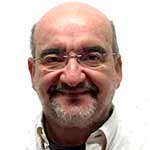 Rafael Sánchez Lamoneda
Profesor del área de Matemáticas Aplicadas
Professor of the Applied Mathematics area
PhD en Matemáticas de Brandeis University, Massachusetts, USA, con equivalencia de la Universidad Carlos III de Madrid.Evaluación positiva de ANECA en las figuras de profesor Contratado Doctor y Profesor de Universidad Privada. Ha escrito varios artículos sobre Algebra Conmutativa y Homológica en revistas internacionales y ha sido tutor de estudiantes para la elaboración de sus tesis de pregrado, maestría y doctorado en matemáticas y en educación matemática. Fue jefe del Departamento de Matemáticas del Instituto Venezolano de Investigaciones Científicas, IVIC y miembro de la Comisión de postgrado de ese Instituto y de la Escuela de Matemáticas de la Universidad Central de Venezuela, UCV. Formé parte de equipos multidisciplinarios para el mejoramiento de la enseñanza de las matemáticas en el Centro Nacional para el Mejoramiento de la Enseñanza de la Ciencia, CENAMEC, en Venezuela. Premio Erdös 2010 otorgado por la World Federation for National Mathematical Competitions. Premio al mejor trabajo en el área de Matemáticas otorgado por el Consejo Nacional de Investigaciones Científicas y Tecnológicas de Venezuela, Conicit en el año 1993. Orden José María Vargas, UCV, 2007. Ha trabajado en las Olimpiadas Matemáticas en Venezuela desde 1978, he sido jefe o tutor de delegaciones del país en Olimpiadas de Matemáticas Internacionales desde 1981. Actual presidente del Comité de Ética de la Olimpiada Internacional de Matemáticas, IMO y miembro del consejo asesor por elección desde 2012 al 2016. Asesor de la Organización de Estados Iberoamericanos para la Educación la Ciencia y la Cultura, OEI, en el área de Matemáticas y Olimpiadas Matemáticas. Asesor en el área de Matemáticas de la Academia de Ciencias Físicas, Matemáticas y Naturales de Venezuela. Presidente de la Asociación Venezolana de Competencias Matemáticas y de la Asociación Matemática Venezolana.
Rafael Sánchez Lamoneda
Profesor del área de Matemáticas Aplicadas
Professor of the Applied Mathematics area
PhD en Matemáticas de Brandeis University, Massachusetts, USA, con equivalencia de la Universidad Carlos III de Madrid.Evaluación positiva de ANECA en las figuras de profesor Contratado Doctor y Profesor de Universidad Privada. Ha escrito varios artículos sobre Algebra Conmutativa y Homológica en revistas internacionales y ha sido tutor de estudiantes para la elaboración de sus tesis de pregrado, maestría y doctorado en matemáticas y en educación matemática. Fue jefe del Departamento de Matemáticas del Instituto Venezolano de Investigaciones Científicas, IVIC y miembro de la Comisión de postgrado de ese Instituto y de la Escuela de Matemáticas de la Universidad Central de Venezuela, UCV. Formé parte de equipos multidisciplinarios para el mejoramiento de la enseñanza de las matemáticas en el Centro Nacional para el Mejoramiento de la Enseñanza de la Ciencia, CENAMEC, en Venezuela. Premio Erdös 2010 otorgado por la World Federation for National Mathematical Competitions. Premio al mejor trabajo en el área de Matemáticas otorgado por el Consejo Nacional de Investigaciones Científicas y Tecnológicas de Venezuela, Conicit en el año 1993. Orden José María Vargas, UCV, 2007. Ha trabajado en las Olimpiadas Matemáticas en Venezuela desde 1978, he sido jefe o tutor de delegaciones del país en Olimpiadas de Matemáticas Internacionales desde 1981. Actual presidente del Comité de Ética de la Olimpiada Internacional de Matemáticas, IMO y miembro del consejo asesor por elección desde 2012 al 2016. Asesor de la Organización de Estados Iberoamericanos para la Educación la Ciencia y la Cultura, OEI, en el área de Matemáticas y Olimpiadas Matemáticas. Asesor en el área de Matemáticas de la Academia de Ciencias Físicas, Matemáticas y Naturales de Venezuela. Presidente de la Asociación Venezolana de Competencias Matemáticas y de la Asociación Matemática Venezolana.
 Javier Sánchez Sierra
Director de Trabajos Fin de Grado
Director of End of Degree Projects
Doctor Ingeniero Industrial por la Universidad de Navarra. Entre 1996 y 1999 trabaja en Widia-Kennametal en mecanizados especiales para automoción y aeronáutica. De 2000 a 2008 es profesor investigador en la Universidad de Navarra, en temas de computación, programación CNC, rapid prototyping, diseño mecánico, modelado 3D y visualización. Su tesis doctoral se centra en el diseño y representación gráfica de estructuras tensadas, tras lo cual realiza un master en Estructuras Tensadas (Archineer) en Dessau, Alemania. Del 2008 al 2011 realiza estancia post-doctoral en la Universidad de Stanford, California (Center for Computer Research in Music and Acoustics) donde colabora en proyectos multidisciplinares relacionados con música, composición, procesado de audio, performances, visualización. Desde 2012 se dedica a la programación de dispositivos móviles (como desarrollador freelance, con más de 30 apps en el AppStore) y es co-fundador de varias startups. Es profesor asociado en el Berklee College of Music (Campus de Valencia) y director técnico (CTO) de Flits (www.flits.live), con sede en Hamburgo, Alemania.
Javier Sánchez Sierra
Director de Trabajos Fin de Grado
Director of End of Degree Projects
Doctor Ingeniero Industrial por la Universidad de Navarra. Entre 1996 y 1999 trabaja en Widia-Kennametal en mecanizados especiales para automoción y aeronáutica. De 2000 a 2008 es profesor investigador en la Universidad de Navarra, en temas de computación, programación CNC, rapid prototyping, diseño mecánico, modelado 3D y visualización. Su tesis doctoral se centra en el diseño y representación gráfica de estructuras tensadas, tras lo cual realiza un master en Estructuras Tensadas (Archineer) en Dessau, Alemania. Del 2008 al 2011 realiza estancia post-doctoral en la Universidad de Stanford, California (Center for Computer Research in Music and Acoustics) donde colabora en proyectos multidisciplinares relacionados con música, composición, procesado de audio, performances, visualización. Desde 2012 se dedica a la programación de dispositivos móviles (como desarrollador freelance, con más de 30 apps en el AppStore) y es co-fundador de varias startups. Es profesor asociado en el Berklee College of Music (Campus de Valencia) y director técnico (CTO) de Flits (www.flits.live), con sede en Hamburgo, Alemania.
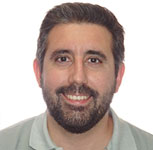 Andrés Sancho Arellano
Profesor del área de Ingeniería Eléctrica y Electrónica
Professor of the Electrical and Electronic Engineering area
Graduado en Ingeniería aeroespacial por la UPM con intensificación de aeronaves en el Máster Universitario en Ingeniería Aeronáutica (MUIA) por la UPM. Actualmente Ingeniero de Cálculo de Estructuras aeronáuticas, tanto de carácter comercial como de defensa, de satélites y aeronaves en empresa privada. Actualmente es profesor asociado en la Universidad Nebrija.
Andrés Sancho Arellano
Profesor del área de Ingeniería Eléctrica y Electrónica
Professor of the Electrical and Electronic Engineering area
Graduado en Ingeniería aeroespacial por la UPM con intensificación de aeronaves en el Máster Universitario en Ingeniería Aeronáutica (MUIA) por la UPM. Actualmente Ingeniero de Cálculo de Estructuras aeronáuticas, tanto de carácter comercial como de defensa, de satélites y aeronaves en empresa privada. Actualmente es profesor asociado en la Universidad Nebrija.
 Mariano Sanz Moreno
Profesor del área de Competencias Profesionales
Professor of the Professional Skills area
Ingeniero Superior de Telecomunicaciones por la Universidad Politécnica de Madrid. Experto en la aplicación de tecnologías a la formación al desarrollo de personas y organizaciones y en la implantación de modelos de competencias profesionales en múltiples empresas, incluyendo la definición, evaluación, enseñanza y mejora continua de las competencias generales y específicas de sus empleados. Entre otros cargos ha desempeñado los de Director de Desarrollo de Negocio en élogos, Director General del Internet Training Center, Director de Alcatel University Madrid y Director de Formación y Consultoría, S.A. (FYCSA- Alcatel). Además es profesor en programas de postgrado y en la actualidad es Socio Director de la consultora Atenea Conocimiento, liderando su primer proyecto de emprendizaje.
Mariano Sanz Moreno
Profesor del área de Competencias Profesionales
Professor of the Professional Skills area
Ingeniero Superior de Telecomunicaciones por la Universidad Politécnica de Madrid. Experto en la aplicación de tecnologías a la formación al desarrollo de personas y organizaciones y en la implantación de modelos de competencias profesionales en múltiples empresas, incluyendo la definición, evaluación, enseñanza y mejora continua de las competencias generales y específicas de sus empleados. Entre otros cargos ha desempeñado los de Director de Desarrollo de Negocio en élogos, Director General del Internet Training Center, Director de Alcatel University Madrid y Director de Formación y Consultoría, S.A. (FYCSA- Alcatel). Además es profesor en programas de postgrado y en la actualidad es Socio Director de la consultora Atenea Conocimiento, liderando su primer proyecto de emprendizaje.
 José Sastre Esteban
Profesor del área de Expresión Gráfica
Professor of the Graphic Expression area
Graduado en Ingeniería Mecánica y Graduado en Ingeniería del Automóvil por la Universidad Nebrija. Máster en Máquinas avanzadas y transportes por la Universidad Carlos III de Madrid. Becario de investigación en el Departamento Escuela de Ingenieros de la Escuela Politécnica Superior de la Universidad Nebrija realizando los proyectos fin de grado de “Diseño de un sistema de transporte autónomo” y “Modelización cinemática en coordenadas naturales de una motocicleta de competición”. En el año 2017 miembro de EME Technologies como asesor técnico dentro del equipo de motociclismo en el campeonato de España de Velocidad. Desde 2017 hasta la actualidad, responsable de diseño en SAF Gondolas.
José Sastre Esteban
Profesor del área de Expresión Gráfica
Professor of the Graphic Expression area
Graduado en Ingeniería Mecánica y Graduado en Ingeniería del Automóvil por la Universidad Nebrija. Máster en Máquinas avanzadas y transportes por la Universidad Carlos III de Madrid. Becario de investigación en el Departamento Escuela de Ingenieros de la Escuela Politécnica Superior de la Universidad Nebrija realizando los proyectos fin de grado de “Diseño de un sistema de transporte autónomo” y “Modelización cinemática en coordenadas naturales de una motocicleta de competición”. En el año 2017 miembro de EME Technologies como asesor técnico dentro del equipo de motociclismo en el campeonato de España de Velocidad. Desde 2017 hasta la actualidad, responsable de diseño en SAF Gondolas.
 Samya Serroukh
Profesor del área de Expresión Gráfica
Professor of the Graphic Expression area
Graduada en Ingeniería Electrónica y Sistemas por la Universidad Politécnica de Madrid. Máster de Ingeniería de vehículos de competición finalizado en septiembre de 2023. Ha trabajado como Technology Transformation Analyst en Accenture Spain (10/09/2021 - 03/06/2022), ERTMS Software Developer en NERTUS Mantenimiento Ferroviario. Actualmente es diseñadora en Solutions Improving Technology y profesora asociada en la Escuela Politécnica Superior.
Samya Serroukh
Profesor del área de Expresión Gráfica
Professor of the Graphic Expression area
Graduada en Ingeniería Electrónica y Sistemas por la Universidad Politécnica de Madrid. Máster de Ingeniería de vehículos de competición finalizado en septiembre de 2023. Ha trabajado como Technology Transformation Analyst en Accenture Spain (10/09/2021 - 03/06/2022), ERTMS Software Developer en NERTUS Mantenimiento Ferroviario. Actualmente es diseñadora en Solutions Improving Technology y profesora asociada en la Escuela Politécnica Superior.
 Emilio Trigueros Páez
Profesor del área de Física
Professor of the Physics area
Doctor en Astrofísica por la Universidad de Alicante, Licenciado en Física por la Universidad de La Laguna y Master en Astrofísica por la Universidad Complutense de Madrid. Ha publicado en diferentes revistas indexadas del primer cuartil, y participado en conferencias internacionales en el área de Astrofísica Estelar. Docente en la Universidad Antonio de Nebrija.
Emilio Trigueros Páez
Profesor del área de Física
Professor of the Physics area
Doctor en Astrofísica por la Universidad de Alicante, Licenciado en Física por la Universidad de La Laguna y Master en Astrofísica por la Universidad Complutense de Madrid. Ha publicado en diferentes revistas indexadas del primer cuartil, y participado en conferencias internacionales en el área de Astrofísica Estelar. Docente en la Universidad Antonio de Nebrija.
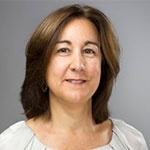 Pilar Vélez Melón
Directora académica del área de Ciencias
Pilar Vélez Melón
Directora académica del área de CienciasProfesora del área de Matemáticas Academic director of the Science area
Professor of the Mathematics area Doctora y licenciada en Ciencias Matemáticas por la Universidad Complutense de Madrid, ha desarrollado su actividad docente e investigadora en las Universidades Complutense, de Pisa (Italia) y Antonio de Nebrija. En esta última ha desempeñado los cargos de Coordinadora del Área de Matemática Aplicada, Jefe de Estudios y Directora del Departamento de Ingeniería Informática, Vicerrectora y Rectora.
Profesor acreditado por ANECA en las figuras de contratado doctor y profesor de universidad privada, con un sexenio de investigación reconocido.
Participa como investigadora en un proyecto del Plan nacional de I+D+i y en una red temática de excelencia sobre Algebra computacional y aplicaciones. Sus trabajos de investigación se encuentran publicados en revistas indexadas como Journal of Symbolic Computation, Journal of Automatic Reasoning, Journal of Pure and Applied Algebra, Manuscripta Mathematica o ACM, entre otras.
Así mismo, participa activamente en congresos y reuniones en los campos del Cálculo simbólico y de la Didáctica de las matemáticas. Ha presentado recientemente sus trabajos sobre razonamiento automático en geometría o sobre pensamiento algebraico en el VIII Congreso Iberoamericano de Educación Matemática, el 24th Conference on Applications of Computer Algebra o la Conference on Digital Tools in Mathematics Education.
Forma parte de los comités científicos y organizador del I Jornadas Nebrija de Transversalidad en la Docencia. Mantiene líneas de colaboración con la Federación Española de Profesores de Matemáticas (FESPM) y la Real Sociedad Matemática Española (RSME).
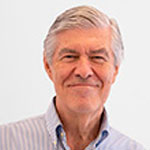 Juan Viguri Flores
Coordinador y profesor del área de Empresa
Juan Viguri Flores
Coordinador y profesor del área de EmpresaCoordinador de prácticas curriculares
Director de Trabajos Fin de Grado Coordinator and professor of the Business area
Coordinator of curricular practices
Director of Final Degree Projects Doctor Ingeniero Industrial por la Universidad Nebrija. Ingeniero Industrial por la Universidad del País Vasco, Escuela de Ingeniería de Bilbao. Director de Planificación Corporativa de Aceralia. En la Universidad Antonio Nebrija, delegado del Rector para la calidad. En la actualidad, en la Escuela Politécnica Superior, es coordinador del programa internacional, y de las prácticas curriculares y extracurriculares en empresa. Además, en el ámbito docente, tiene más de 25 años de experiencia como coordinador y profesor del área de empresa, en asignaturas tanto de Grado como de Máster. Durante varios años ha dirigido un proyecto de investigación con Arcelor para la recuperación de residuos industriales.
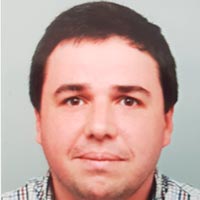 Víctor Zapata Ramírez
Profesor del área de Ingeniería Eléctrica y Electrónica
Professor in the area of Electrical and Electronic Engineering
Doctor en Química Aplicada por la Universidad Autónoma de Madrid (2023). Experiencia en investigación en el Instituto de Cerámica y Vidrio (ICV-CSIC) y en el Institut des Matériaux de Nantes Jean Rouxel, siempre ligado a la obtención y caracterización de materiales para dispositivos de conversión electroquímica de alta temperatura. Cuenta con 7 publicaciones en revistas científicas de alto impacto y ha participado en más de 15 congresos nacionales e internacionales como ponente.
Víctor Zapata Ramírez
Profesor del área de Ingeniería Eléctrica y Electrónica
Professor in the area of Electrical and Electronic Engineering
Doctor en Química Aplicada por la Universidad Autónoma de Madrid (2023). Experiencia en investigación en el Instituto de Cerámica y Vidrio (ICV-CSIC) y en el Institut des Matériaux de Nantes Jean Rouxel, siempre ligado a la obtención y caracterización de materiales para dispositivos de conversión electroquímica de alta temperatura. Cuenta con 7 publicaciones en revistas científicas de alto impacto y ha participado en más de 15 congresos nacionales e internacionales como ponente.
 Gloria Zarzuelo Puch
Profesora de las áreas de Energía y Medio Ambiente.
Professor in the areas of Energy and Environment.
Ingeniera Industrial por la UPM, especialidad Mecánica - Construcción. Máster en Prevención de Riesgos Laborales, especialidad Seguridad Industrial. Profesora de la Escuela Politécnica Superior desde el curso 2007/2008. Mención de excelencia docente en el curso 2017/2018. En la actualidad realiza los estudios de doctorado en el Programa de Doctorado en Ciencias y Tecnologías aplicadas a la Ingeniería Industrial de la UCLM. La investigación se centra en el análisis termodinámico y termoeconómico de la recuperación de energía residual en diferentes máquinas térmicas, fruto de la cual ha publicado el artículo científico “Thermodynamic and exergoeconomic analysis of energy recovery system of biogas from a wastewater treatment plant and use in a Stirling engine”, en la revista Renewable Energy. Compagina su labor docente con labores de consultoría relacionadas con el diseño y la optimización de las instalaciones de los edificios.
Gloria Zarzuelo Puch
Profesora de las áreas de Energía y Medio Ambiente.
Professor in the areas of Energy and Environment.
Ingeniera Industrial por la UPM, especialidad Mecánica - Construcción. Máster en Prevención de Riesgos Laborales, especialidad Seguridad Industrial. Profesora de la Escuela Politécnica Superior desde el curso 2007/2008. Mención de excelencia docente en el curso 2017/2018. En la actualidad realiza los estudios de doctorado en el Programa de Doctorado en Ciencias y Tecnologías aplicadas a la Ingeniería Industrial de la UCLM. La investigación se centra en el análisis termodinámico y termoeconómico de la recuperación de energía residual en diferentes máquinas térmicas, fruto de la cual ha publicado el artículo científico “Thermodynamic and exergoeconomic analysis of energy recovery system of biogas from a wastewater treatment plant and use in a Stirling engine”, en la revista Renewable Energy. Compagina su labor docente con labores de consultoría relacionadas con el diseño y la optimización de las instalaciones de los edificios.
More Academic Information
Official Degree:Bachelor's Degree in Automobile Engineering
Aimed at young people who are passionate about the automotive world, and want to make it their profession.
- Desde una sólida base de formación científica y tecnológica, sea capaz de liderar los procesos de innovación en las empresas del sector del automóvil, trabajando en un entorno internacional y multidisciplinar.
- Con una amplia capacidad de análisis para le resolución de problemas en entornos multidisciplinares y multilingüe con iniciativa, toma de decisión, creatividad y razonamiento crítico.
- Asumir tareas de liderazgo, organización, planificación y dirección dentro de las actividades de la empresa en general y en particular dentro de las del sector del automóvil.
- Manejar especificaciones, reglamentos y normativa de obligado cumplimiento, tanto interna propia de las empresas del sector del automóvil como de legislación general aplicable al sector.
- Aplicar los principios y métodos de calidad.
- Analizar y valorar el impacto social y medioambiental de las soluciones técnicas propuestas.
- Aprender autónomamente y cursar estudios de postgrado que le permitan profundizar y/o especializarse en los diferentes campos de la ingeniería.
240 ECTS credits.
Minimum 12 ECTS and maximum 90 ECTS per registration and academic period
Center responsible:Higher Polytechnic School
Branch of knowledge: Engineering and Architecture
Available places: 55
Type of Education: Classroom attendance
Academic year in which it was implemented: 2010
Languages: Spanish / English
University Services: [+info]
Competences
Generic horizontal skills in the bachelor's programme in Automobile EngineeringInstrumental skills
Skills having an instrumental role. Highlights include:
- Ability to analyse and synthesise.
- Ability to organise and plan.
- General knowledge.
- Fundamentals of the profession.
- Spoken and written communication in native language.
- Knowledge of a foreign language.
- IT knowledge.
- Information management ability.
- Problem-solving.
- Decision-making.
Personal skills
Individual skills consisting of the ability to express one's own feelings, and critical and self-critical skills. Social skills relating to interpersonal skills, ability to work in a team and expression of social and ethical commitments. These skills tend to support social interaction and cooperation processes. We highlight the following:
- Critical and self-critical skills.
- Teamwork.
- Interpersonal skills.
- Ability to work in an interdisciplinary team.
- Ability to communicate with experts in other areas.
- Appreciation of diversity and multiculturalism.
- Ability to work in an international context.
- Ethical commitment.
Systemic skills
The skills and abilities that relate to systems as a whole. These skills include the ability to plan changes so that improvements can be made to systems as a whole, and to design new systems. Systemic or integrating skills require the prior acquisition of instrumental and interpersonal skills. The highlights include:
- Ability to apply knowledge in practice.
- Ability to learn.
- Ability to adapt to new situations.
- Ability to generate new ideas (creativity).
- Leadership.
- Knowledge of the cultures and customs of other countries.
- Ability to work independently.
- Project design and management.
- Initiative and entrepreneurial spirit.
- Concern for quality.
- Motivation of achievement.
Basic training module
- Ability to solve mathematical issues that may arise in the course of engineering. Aptitude to apply knowledge on: linear algebra; geometry, differential geometry; differential and integral calculus; differential equations and partial derivatives; numerical methods; numerical algorithms; statistics and optimisation.
- Understanding and mastery of basic concepts on the general laws of mechanics, thermodynamics, fields and waves and electromagnetism and their application for solving engineering problems.
- Basic knowledge on the use and programming of computers, operating systems, databases and engineering software.
- Ability to understand and apply the fundamentals of general chemistry, organic and inorganic chemistry and their applications in engineering.
- Capacity for spatial vision and knowledge of graphic representation techniques, both by traditional methods of metric geometry and descriptive geometry, and by computer-aided design applications.
Module in common with the industrial engineering branch
- Knowledge of applied thermodynamics and heat transmission. Basic principles and their application to solving engineering problems.
- Understanding of the basic principles of fluid mechanics and their application to problem solving in the engineering field. Calculation of pipes, channels and fluid systems.
- Knowledge of the fundamentals of materials science, technology and chemistry. Understanding of the relationship between microstructure, synthesis or processing, and material properties.
- Knowledge and use of the principles of circuit and electrical machine theory.
- Understanding of the fundamentals of electronics.
- Understanding of the fundamentals of automation and control methods. Understanding of the principles of the theory of machines and mechanisms.
- Understanding and use of the principles of resistance of materials.
- Basic understanding of production and manufacturing systems.
- Knowledge and skills to apply the techniques of graphical engineering.
- Understanding of and ability to calculate and design industrial structures and constructions.
- Applied knowledge of manufacturing systems and processes, metrology, and quality control.
Specific to automobile engineering
- Understanding of thermal engineering applied to vehicle engines.
- Understanding of new propulsion systems applied to automobiles. Hybrid and electric vehicles and fuel cells.
- Understanding of vehicle theory.
- Understanding of vehicle systems and parts.
- Understanding of and skills to apply the fundamentals of elasticity and resistance of materials to the behaviour of automobile parts and structural elements of vehicles. Finite elements method.
- Understanding of electronic instrumentation and industrial information technology applied to electronic systems in vehicles and tests.
- Understanding of and skills to apply materials engineering to vehicle parts and structural elements.
- Awareness of the laws, regulations and standards applicable to the automobile and parts industry.
- Understanding and application of quality systems and standards to industrial projects in the automobile sector.
The Final Research Project tests that the student has acquired and integrated the general and specific skills imparted in the course of the degree programme.
The student's mastery of general skills is tested by being required to design and implement a sufficiently complex engineering project, focusing on innovation and with an emphasis on teamwork. Part of the workload may be devoted to the simulation and/or research work. When completing the project, the student must also acquire personal skills relating to searching and organising documentation, presentation, teamwork, etc.
Admission criteria
En la Universidad Antonio de Nebrija, se llevarán a cabo los procedimientos de admisión establecidos por la legislación universitaria (Real Decreto 1393/2007 de 29 de octubre por el que se establece la ordenación de las enseñanzas universitarias oficiales) con particular referencia a los principios rectores del acceso a la universidad española: igualdad, mérito, capacidad, accesibilidad universal y ajuste a los criterios del Espacio Europeo de Educación Superior.
Asimismo la Universidad Nebrija, cumple lo establecido en el Artículo 13 del Real Decreto 1892/2008. Superación de la prueba de acceso a la universidad.
“1. El acceso a la universidad española, tanto pública como privada, para cursar las enseñanzas conducentes a la obtención de los distintos títulos de las enseñanzas universitarias oficiales de Grado con validez en todo el territorio nacional, requerirá, con carácter general, la superación de la prueba a la que se refiere el artículo 38 de la Ley Orgánica 2/2006, de 3 de mayo, de Educación, que se regula en el presente real decreto, sin perjuicio de los otros supuestos previstos en el artículo 3 del presente real decreto.”
El perfil de ingreso recomendado es el del alumno de bachillerato tecnológico, con buenas calificaciones, con especial inclinación hacia la mecánica y los automóviles, y buena base en materias fundamentales como física y matemática.
En el caso de acceso desde ciclos formativos superiores de formación profesional, el ciclo formativo superior recomendado para acceder al grado será el de mantenimiento de vehículos autopropulsados (en sus tres títulos).
Pueden solicitar la admisión en primer curso los estudiantes que se encuentren en alguna de las siguientes situaciones académicas:
- Alumnos procedentes de 2º de Bachillerato y Selectividad o COU y Selectividad.
- Alumnos que hubieran finalizado sus estudios de enseñanza secundaria en el extranjero y tengan acceso a la Universidad de su país (para los países miembros de la Unión Europea o firmantes del acuerdo sobre el Espacio Económico Europeo o aquellos con los que se haya suscrito acuerdo de reconocimiento de títulos).
- Alumnos que hubieran finalizado sus estudios de enseñanza secundaria en el extranjero y hayan superado la Selectividad para Extranjeros (resto de los sistemas educativos).
- Pueden solicitar la admisión en cursos distintos de primero los estudiantes que hayan realizado estudios universitarios en otra universidad española o extranjera y quieran continuarlos en la Universidad Nebrija, o bien quieran comenzar otros distintos de esta Universidad.
Forma y plazos de presentación de solicitudes de admisión
Para solicitar la admisión en cualquier estudio universitario oficial de Grado de la Universidad será necesario cumplimentar la correspondiente solicitud de admisión a través de la página web de la Universidad, o bien solicitarla en cualquiera de los campus universitarios dentro de los plazos establecidos por el Departamento de Desarrollo Universitario. Más información.
Proceso de admisión
El proceso de admisión, en los programas de grado, se divide en varias fases, tal y como se detalla a continuación:
- 1. Preinscripción
Los estudiantes que desean iniciar sus estudios universitarios en la Universidad Antonio de Nebrija deben presentar el impreso de solicitud de admisión junto con la documentación requerida.
La presentación de la solicitud de admisión junto con el impreso de elección de fecha para la realización de la prueba de admisión se realiza personalmente durante una visita a la Universidad o se remite por correo postal a la Universidad.
Igualmente se puede iniciar el procedimiento de admisión rellenando el formulario de admisión on-line. La Sección de Información Académica confirma al candidato la recepción de la solicitud impresa u on-line y le convoca a la prueba de admisión elegida.
El día de la prueba de admisión, el candidato debe presentar, si no lo ha hecho con antelación, la siguiente documentación:- Fotocopia del expediente académico.
- Fotocopia del DNI o pasaporte.
- Dos fotografías tamaño carné.
- Carta de presentación de un profesor/tutor del centro de procedencia o persona con quien haya tenido contacto académico o profesional
- 2. Pruebas de admisión
Todos los alumnos que desean realizar su carrera universitaria en la Universidad Antonio de Nebrija deben superar un proceso de admisión consistente en:- Evaluación del expediente académico.
- Evaluación de los resultados obtenidos en las pruebas de admisión
- Estas pruebas que se desarrollan en una jornada - mañana o tarde - tienen una duración aproximada de 3 horas y consisten en:
- Prueba psicotécnica.
- Prueba específica de la/s titulación/es elegida/a.
- Prueba de nivel de inglés.
- Entrevista personal con un profesor de la universidad.
Los resultados de las pruebas de admisión se comunican por escrito y por teléfono a cada candidato en un plazo aproximado de 3 a 5 días.
- 3. Prematrícula
Una vez comunicada la admisión, los candidatos deben realizar la reserva de plaza. Esta prematrícula económica garantiza la plaza del candidato en la Universidad. - 4. Matrícula
Los candidatos prematriculados que deseen formalizar su matrícula académica en la Universidad deberán, dentro de los plazos señalados, seguir los siguientes pasos:- Entrega de documentación: acreditar documentalmente que han superado los requisitos establecidos por la legislación universitaria española para poder comenzar/continuar sus estudios universitarios en la Universidad Nebrija.
- Formalización del proceso de matrícula vía Internet: El servicio de automatrícula de la página Web de la Nebrija permite a los estudiantes admitidos realizar todos los trámites académicos, económicos y administrativos, sin tener que desplazarse físicamente a la Universidad. Los alumnos admitidos formalizarán su automatrícula en los plazos que se indiquen. Para ello, recibirán en su domicilio, junto con su carta de admisión, la clave de acceso y contraseña personal necesarios para poder realizar su automatrícula académica y económica. Formalizada la automatrícula, el candidato adquiere la condición de alumno de la Universidad Nebrija. En el proceso de automatrícula, el alumno cuenta en todo momento con asistencia técnica de los Servicios Informáticos, así como con asistencia académica, a través del que será su tutor, para que éste le pueda orientar en la elección de asignaturas.
- Abono de los derechos de inscripción anual de la titulación para la que resultó admitido. La tasa de reserva de plaza es una parte de los derechos de inscripción anual.
Employability
Employability recognized in the Rankings
The commitment of Nebrija University to the academic requirement, training in leading companies and institutions, innovation in multidisciplinary programs and international projection, places the University in the top positions of the most important rankings.
The International Ranking QS Stars awards Nebrija University the maximum score in the quality and satisfaction of students in teaching, employability of the graduates and the internationalization of the institution.
The national rankings also recognize Nebrija University as the first Spanish university in teaching and second in employability, highlighting its performance in research, knowledge transfer and internationalization.
The Bologna Declaration formalized the principles on which the European Higher Education Area should be based: quality, mobility, diversity, competitiveness and employment growth.
From this, Nebrija stands as an academic model of reference, educating students with excellent individual behavior, interaction with their environment and motivated by and for constant and continuous training. The Nebrija Institute of Professional Skills works every day to achieve the differentiation of our students through the development of attitudes and skills.
The main objective is for students to achieve the best of themselves through the development and empowerment of their personal skills and resources through personal self-knowledge.
In addition, some of the professional skills that are worked on within the three seminars are those related to interpersonal skills and active communication skills and negotiation, indispensable for our students to know how to transmit ideas, to argue them, to provide information and opinions in an adequate, clear and convincing way.
Within what will be their work performance, other aspects such as teamwork, conflict resolution and project management ability will be worked on.
In the third block, skills worked on are those aimed at increasing the student's employability. They will work with tools and techniques for job searching, and perform tasks that achieve in the student a greater use of their personal skills.
For all this we have currently active experts in selection of people, professionals dedicated to personal and professional training and professionals dedicated to the world of communication and the arts.
In this way, and in a complementary way to his/her specific training, we help the student create a differentiating pattern in the social and business environment in which he/she will be immersed when he/she finishes his/her studies.
International
The Department of International Programs of Nebrija University carries out a constant effort to follow up on the agreements with the most prestigious universities.
Students can study at one of the following foreign universities
NOTE: The destination universities, offered by degree, may vary according to the International Mobility Program. For more information, students can consult the information online in the International Mobility Program.
Several universities have special academic or linguistic requirements. For more information, consult the Department of International Programs.
The information published here is for guidance only and may be subject to modification.
University Life in Automobile Engineering
Visit all the Activities of the Higher Polytechnic School
Descubre el Degree in Automobile Engineering
Una formación especializada donde podrás aprender al lado de los mejores y participando en proyectos reales como el Nebrija To Dakar o Moto Student.
Campeones de España de Rallycross – CERX Loterías
Universidad Nebrija, junto a nuestro joven piloto Diego Martínez (17 años), se ha proclamado campeona del Campeonato de España de Rallycross – CERX Loterías.
Este logro ha sido posible también gracias al trabajo y la dedicación de un equipo formado por estudiantes de la Universidad y el equipo de la Estructura Deportiva, que han acompañado a Diego durante toda la temporada, demostrando su talento, compromiso y espíritu de superación.
Un resultado que refuerza nuestro modelo de aprendizaje basado en la experiencia y el trabajo en equipo.
[Más información]Nebrija returns to the Dakar 2026: innovation, talent and the spirit of motorsports in its purest form
Nebrija University returns to the Dakar Rally in 2026 with driver Pedro Peñate and co-driver Daniel Mesa to take its Nebrija to Dakar project to the next level. Our students are having a unique experience: working on a real T1 prototype, analyzing its performance in extreme conditions, and applying their knowledge in the world's toughest competition. With the guidance of a legendary driver and a 100% practical approach, this project transforms a passion for motorsports into a genuine professional opportunity. This is how the talent that will shape the future of the automotive industry is being developed.
Mónica Plaza presenta en la Universidad Nebrija el coche que pilotará junto a su padre en el Dakar
Sodicars, fabricante de vehículos y estructura deportiva con más de 11 años de experiencia en la competición y en el mundo del Motorsport, y la Universidad Nebrija han formado una alianza que ha permitido a los estudiantes ingenieros de la Universidad rediseñar y mejorar el vehículo que participará en los casi 5000 kilómetros cronometrados del Dakar 2023. [Más información]
The Iberian Supercars Endurance champion car made an impressive appearance at Nebrija.
On December 1, attendees at the Madrid-Princesa Campus were captivated as they strolled through the courtyard, encountering a remarkable sight that prompted amazement and photo-taking. The focal point was a gleaming racing car that stood out conspicuously. This was not just any racing car; it was the BMW M240i Racing from the Autoworks MotorSport team, which secured the championship title in the Iberian Supercars Endurance in 2023.
Siente la pasión del motor con el Club del Automóvil Nebrija
Los alumnos unen a su aprendizaje teórico más tradicional, la participación activa en proyectos profesionales reales, donde pueden poner en práctica lo aprendido.
Road to Dakar
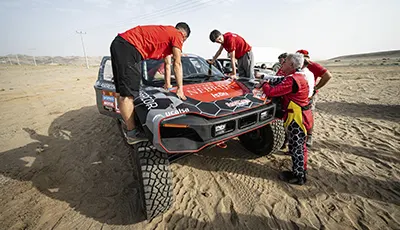
Nebrija University is part of the Dakar Rally, the most demanding motor race in the world. A long-term project started in 2022, with a clear roadmap in which our students, teachers and researchers, together with the Sodicars competition team, will integrate the new technological advances into this type of vehicle.
Nebrija-Sodicars, a leading team in terms of technology, innovation, research and sustainability in the Dakar Rally.
MotoStudent
El reto universitario definitivo sobre dos ruedas. Una oportunidad única para los amantes del motociclismo de involucrarse de lleno en la competición por excelencia dentro del marco universitario. Trabajando en equipo, los alumnos conocerán en detalle este tipo de vehículo y responderán al desafío de ingeniería que supone encontrar la solución perfecta para obtener el máximo rendimiento de la moto en la pista. Una experiencia inolvidable para los alumnos y que les permite conocer y aprender en un entorno profesional.
Nebrija Virtual Engineering
El mundo de la competición automovilística ha experimentado un crecimiento en los últimos años gracias al desarrollo que han tenido los entornos de simulación virtual o SimRacing. Una vertiente más asequible que no requiere de desorbitados alquileres de circuitos y vehículos. La Universidad Nebrija desde 2018 ha apostado por este sector con la creación de Nebrija Virtual Engineering, equipo de competición formado por alumnos y miembros del Club del Automóvil. El equipo, haciendo uso de sofisticado simulador artesanal (Cool Perfomance Formula Simulator), se enfrenta y solventa retos y desafíos propios de la competición real. Estrategias de carrera, configuración de setups, análisis de telemetrías… un sinfín de situaciones que permiten a los alumnos aprender y conseguir experiencia real de un entorno de competición.
Otras actividades y eventos del Club del Automóvil Nebrija
- Competiciones de Karting
- Competiciones de SimRacing
- Ponencias y Clases Magistrales (Lucas Ordóñez, José Manuel López, Roberto Gómez…)
- Visitas a Exposiciones, Fábricas y Museos (Retromóvil, Barreiros, RacingAuto…)
- Asistencia a Competiciones Reales (Circuito del Jarama, Rallies…)
- Cursos y Talleres (Ofimática, Python, Matlab-Simulink, Bicicleta Eléctrica, Motores, Soldadura…)
- Conferencias Web (Comisarios de Competición…)
- Becas de Colaboración


